Transform your rest and rejuvenate your life with our expert guide to Sleep Hygiene. Discover practical advice and effective techniques to enhance your sleep quality and establish a restful bedtime routine. Learn how to create an ideal sleep environment, develop healthy sleep habits, and overcome common sleep challenges. Start your journey to better sleep and wake up feeling refreshed and revitalized each day.
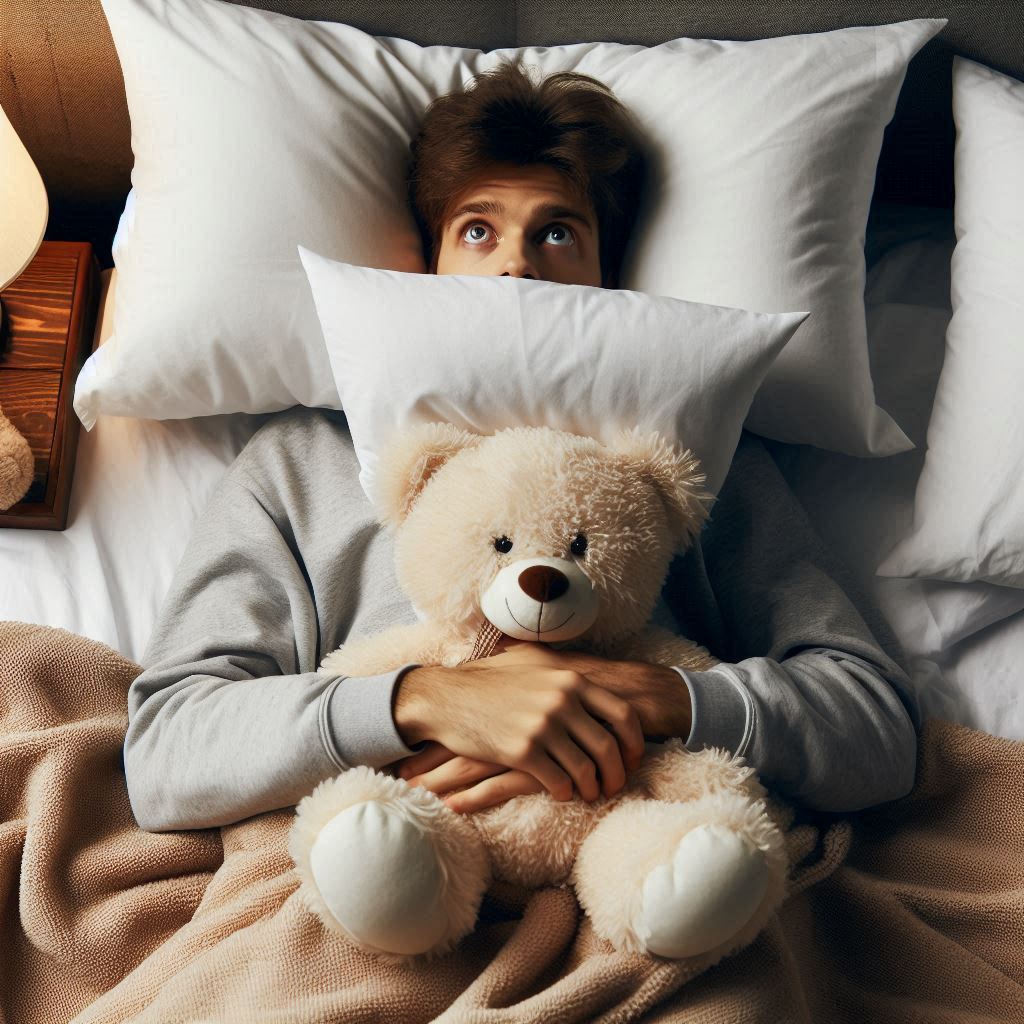
Struggling to Fall Asleep? Stress or Illness?
If you find yourself tossing and turning at night, you’re not alone. Difficulty falling asleep can often be linked to underlying stress or health issues. Let’s explore how these factors might be affecting your sleep and discover effective strategies to help you rest easier.
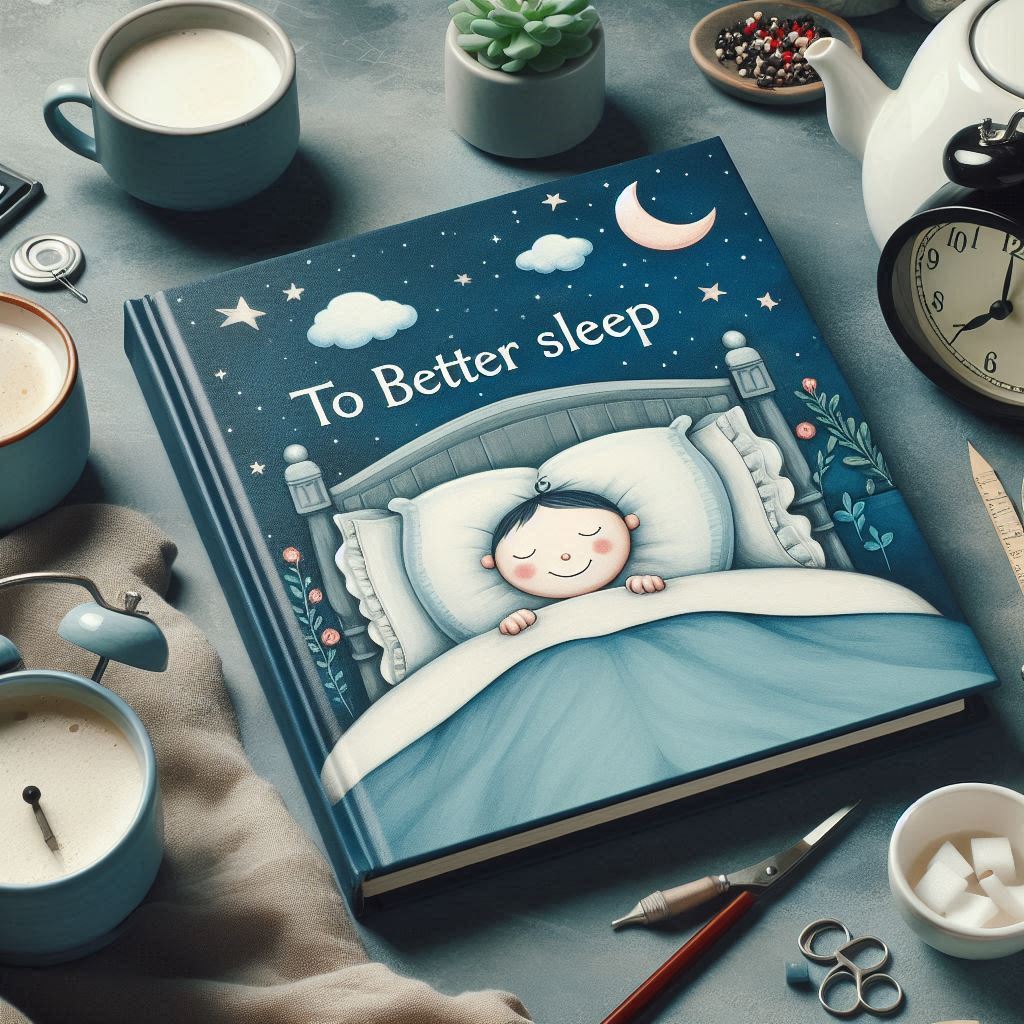
To Better Sleep: A Comprehensive Guide to Enhancing Sleep Quality
Discover effective strategies for improving your sleep quality with our comprehensive guide. From understanding the science behind sleep to practical tips for creating a restful environment, this article offers valuable insights to help you achieve better, more restorative sleep. Say goodbye to sleepless nights and embrace a healthier, more energized you!
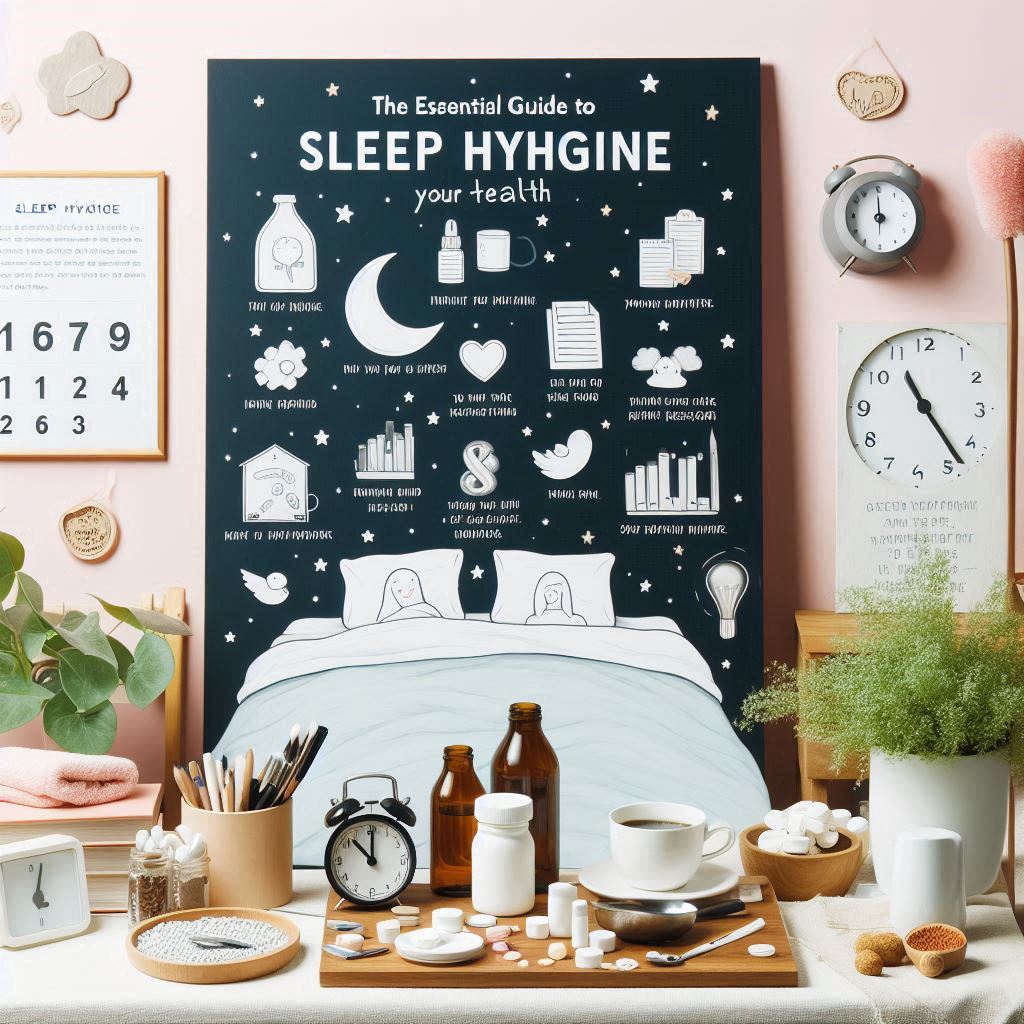
The Essential Guide to Sleep Hygiene: Tips for Better Rest and Health
The Essential Guide to Sleep Hygiene delves into the crucial practices that promote restful and restorative sleep. Discover practical tips for creating a conducive sleep environment, establishing a calming bedtime routine, and implementing lifestyle changes that enhance sleep quality. Learn how good sleep hygiene can improve your overall health, boost your mood, and increase your productivity, paving the way for a more vibrant and fulfilling life.

The Impact of Diet on Sleep Quality: Foods to Avoid and Embrace
Discover the foods that may disrupt your sleep cycle—such as caffeine-laden beverages, sugary snacks, and heavy meals—and learn about nutrient-rich alternatives that can enhance relaxation and promote deeper, more restorative sleep. From calming herbal teas to magnesium-packed foods, this article covers the best dietary adjustments to help you wake up feeling refreshed and energized.

Creating a Sleep-Friendly Bedroom: Design Tips for Better Sleep Hygiene
Explore how your bedroom environment can influence the quality of your sleep. Learn how to design a tranquil, cozy space that promotes rest and relaxation. From choosing the right mattress and blackout curtains to incorporating soothing colors, calming scents, and strategic lighting, this guide offers practical design tips to elevate your sleep hygiene. Create a peaceful haven where you can unwind, recharge, and achieve better, more restful sleep every night.

The Role of Light in Sleep Hygiene: How to Optimize Your Environment
Discover how to create an ideal light environment for better rest by aligning indoor lighting with natural circadian rhythms. Learn about the effects of blue light exposure, the benefits of dim, warm lighting in the evening, and how to use natural light to help regulate your sleep-wake cycle. This guide provides practical tips to help you optimize light in your bedroom and throughout the day to promote deeper, more restorative sleep.
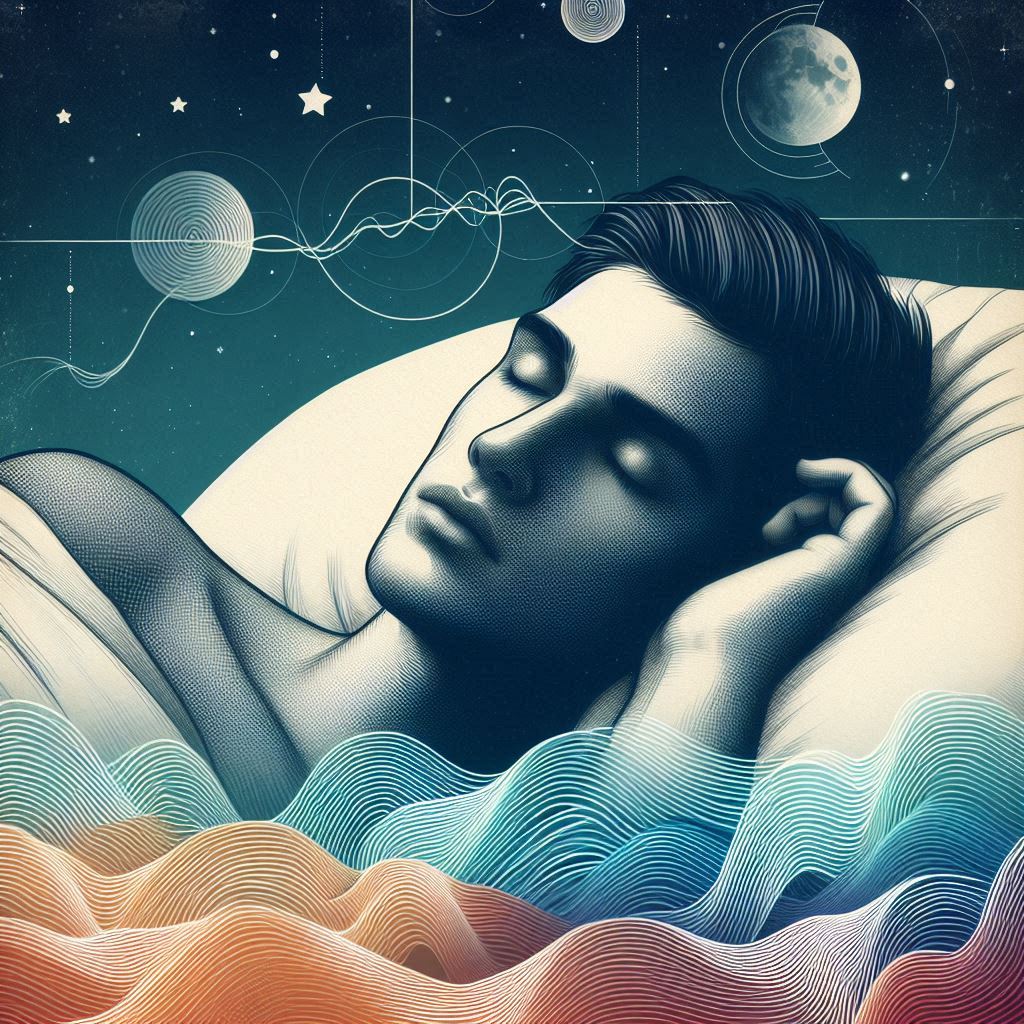
The Science of Sleep: Understanding Sleep Stages and Their Importance
Dive into the fascinating world of sleep cycles and the critical role each stage plays in our health. Learn about the distinct stages of sleep, from light to deep sleep and REM (rapid eye movement), and how each contributes to physical restoration, memory consolidation, and emotional regulation. Discover why a full cycle of sleep stages is essential for waking up refreshed and how disruptions to these cycles can affect well-being.
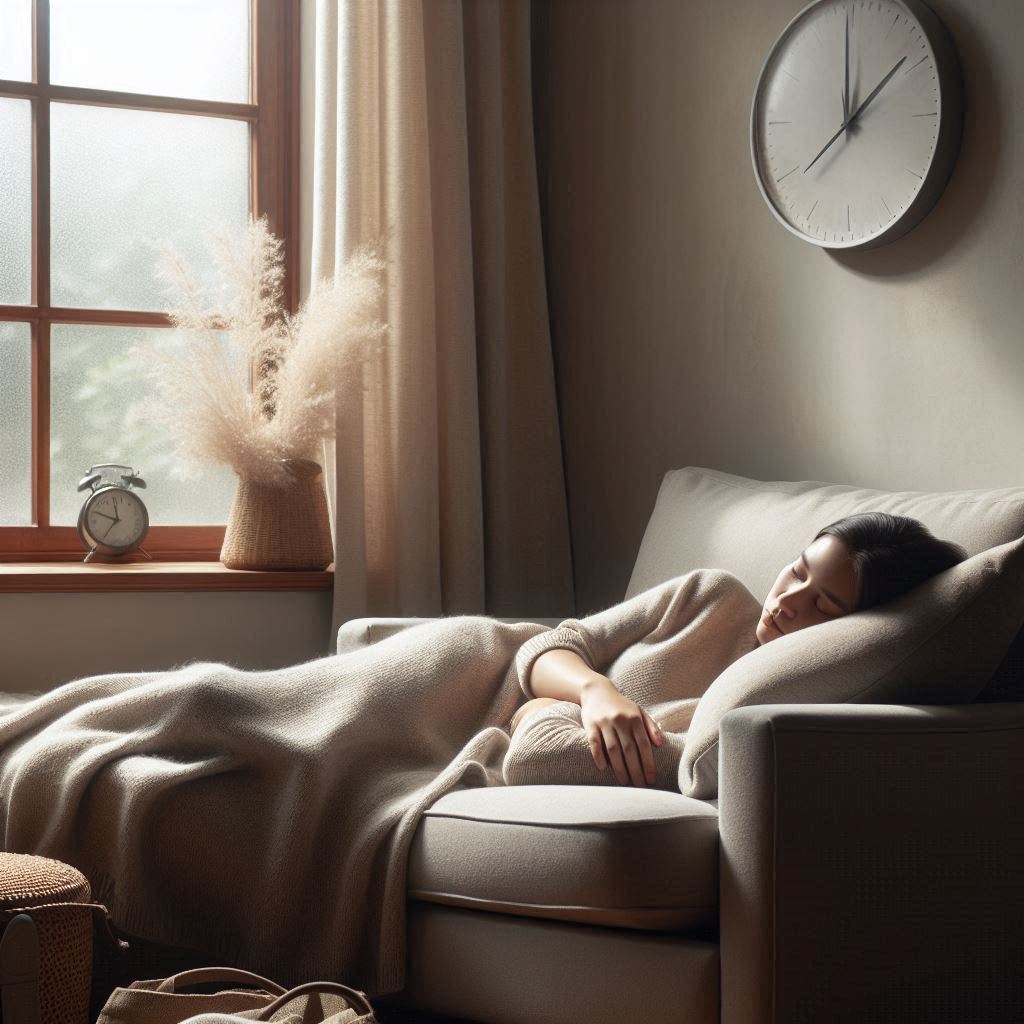
Understanding Napping: When and How to Nap for Optimal Sleep Hygiene
Explore the benefits of napping and how to make it work for you. Learn about the ideal nap lengths, timing, and strategies for achieving the right balance between rest and nighttime sleep quality. Discover the science behind power naps, full-cycle naps, and how napping can improve mood, productivity, and overall well-being without disrupting your nighttime sleep.
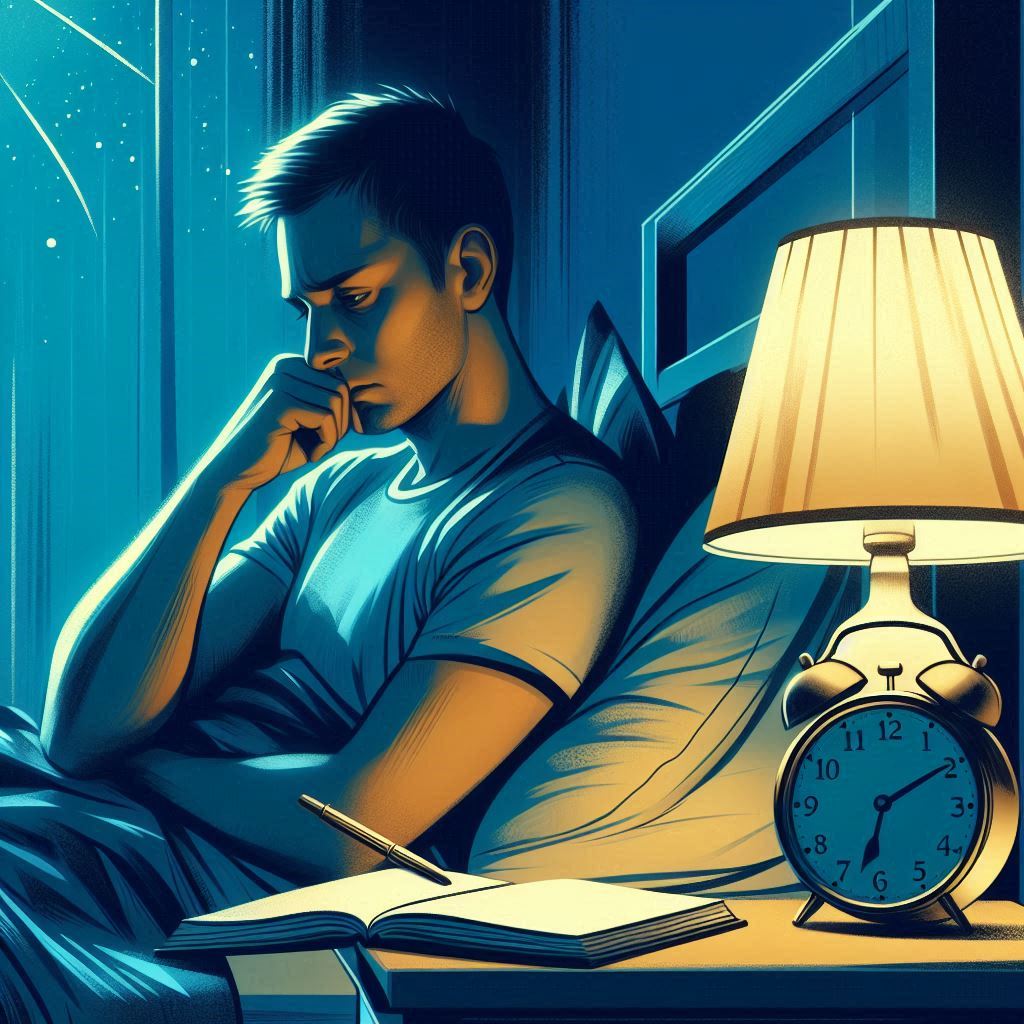
The Impact of Stress on Sleep Hygiene: Understanding, Consequences, and Management Strategies
Learn about the physiological and psychological connections between stress and sleep disruption, as well as the long-term consequences of stress-induced sleep problems. This article also provides practical strategies for managing stress to promote healthier sleep habits, from relaxation techniques to lifestyle changes, empowering you to improve both sleep quality and mental well-being.
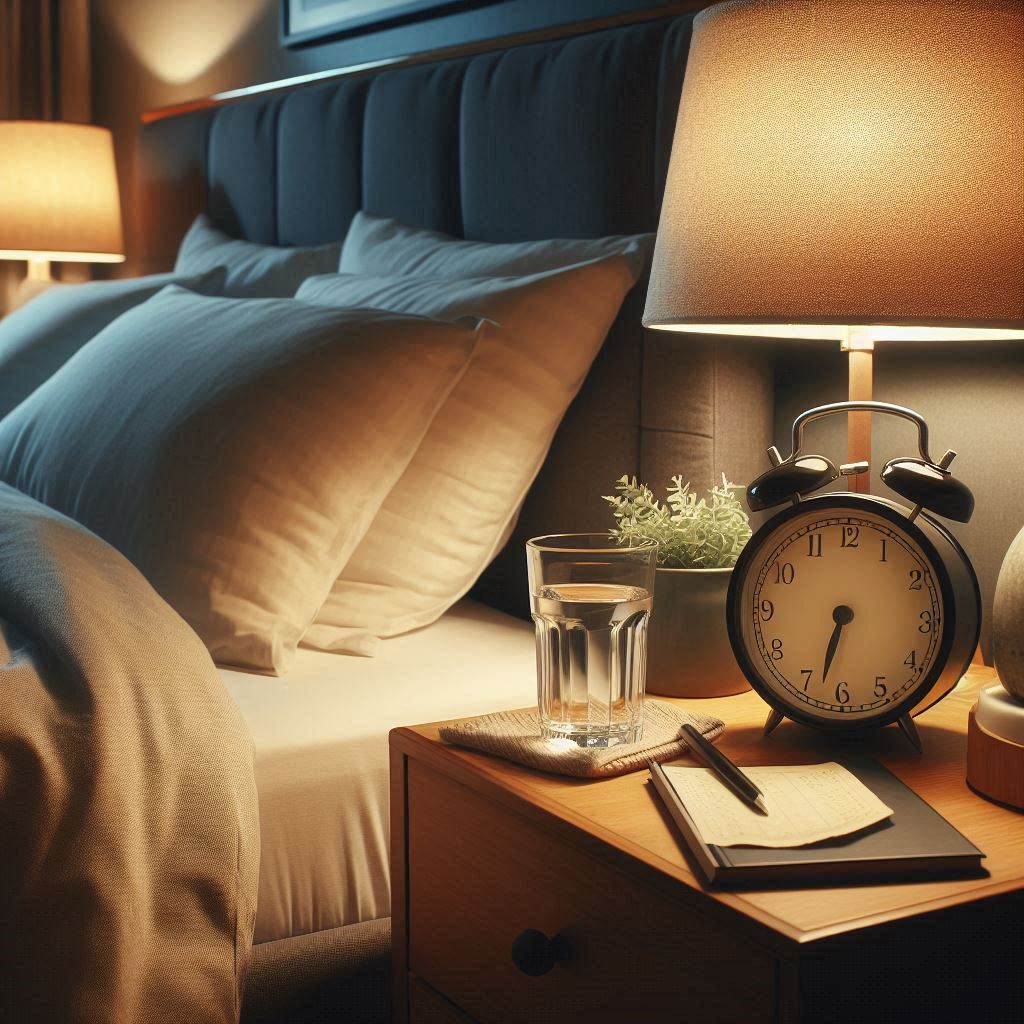
The Importance of a Consistent Sleep Schedule: Tips for Sticking to It
Discover why a consistent sleep schedule enhances sleep quality, supports your circadian rhythm, and boosts daily performance. This article offers practical tips on setting a sleep routine, including managing technology use before bed, creating a pre-sleep ritual, and handling occasional disruptions to keep your body on track.

Sleep Hygiene for Children: Building Healthy Sleep Habits Early
“Sleep Hygiene for Children: Building Healthy Sleep Habits Early” emphasizes the crucial role of establishing good sleep practices during childhood. This article discusses the importance of consistent sleep schedules, bedtime routines, and a calming sleep environment in promoting better sleep quality for children. It also covers the impact of screen time, diet, and physical activity on sleep, providing parents with actionable tips to help their children develop healthy sleep habits that can last a lifetime.
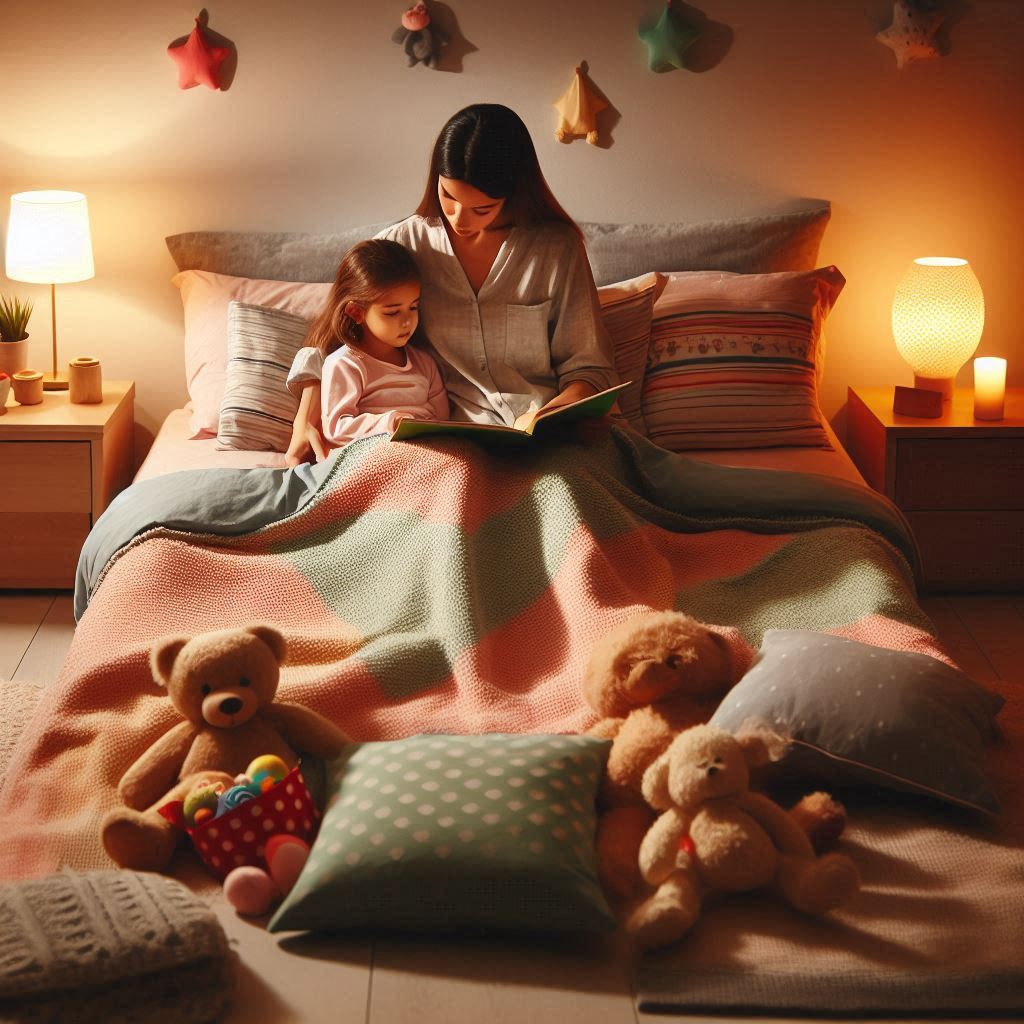
Sleep Hygiene for Shift Workers: Comprehensive Strategies for Optimal Rest
Explore the unique challenges faced by individuals who work non-traditional hours. This article offers practical tips for shift workers to improve their sleep quality, including creating a conducive sleep environment, establishing a consistent sleep schedule, and implementing relaxation techniques. It also addresses the importance of managing light exposure, nutrition, and exercise to mitigate the effects of shift work on overall well-being. By following these strategies, shift workers can enhance their sleep hygiene and achieve better rest, leading to improved productivity and health.

Mindfulness and Sleep: Techniques to Calm Your Mind Before Bed
This article provides readers with effective techniques to incorporate mindfulness into their bedtime routines, helping to calm racing thoughts and reduce anxiety. Strategies such as deep breathing exercises, progressive muscle relaxation, and guided imagery are explored, along with the benefits of meditation and gratitude journaling. By adopting these mindfulness techniques, readers can create a peaceful transition to sleep, enhance their sleep hygiene, and ultimately enjoy more restorative rest.

Exploring the Link Between Mental Health and Sleep Hygiene
Examines the intricate relationship between mental well-being and sleep quality. This article highlights how mental health conditions, such as anxiety and depression, can negatively impact sleep patterns, leading to insomnia or disrupted sleep. Conversely, poor sleep hygiene can exacerbate mental health issues, creating a vicious cycle. Readers will learn about effective sleep hygiene practices that can improve both sleep quality and mental health, including establishing a calming bedtime routine, creating a restful sleep environment, and prioritizing relaxation techniques. The article also emphasizes the importance of seeking professional help for mental health concerns and implementing sustainable lifestyle changes for better sleep and emotional resilience.

The Effects of Technology on Sleep: How to Disconnect for Better Rest
With the rise of screens in our daily lives—from smartphones and tablets to televisions—this article delves into how blue light exposure and constant notifications can disrupt our natural sleep cycles and lead to insomnia. It also discusses the psychological effects of technology, such as increased stress and anxiety, which can further impair our ability to relax and fall asleep. Readers will discover practical tips for disconnecting from technology before bedtime, including establishing tech-free zones, creating a relaxing bedtime routine, and utilizing tools like blue light filters. The article emphasizes the importance of cultivating a healthy relationship with technology to promote better sleep hygiene and overall well-being.

How Mobile Phones Contribute to Sleep Disorders: Causes and Solutions
This article explores the impact of mobile phone use on sleep quality and disorders. It delves into how blue light exposure, constant connectivity, and screen time before bed can disrupt natural sleep patterns. Additionally, the article offers practical solutions to mitigate these effects, such as setting boundaries for device use and implementing healthy nighttime routines.
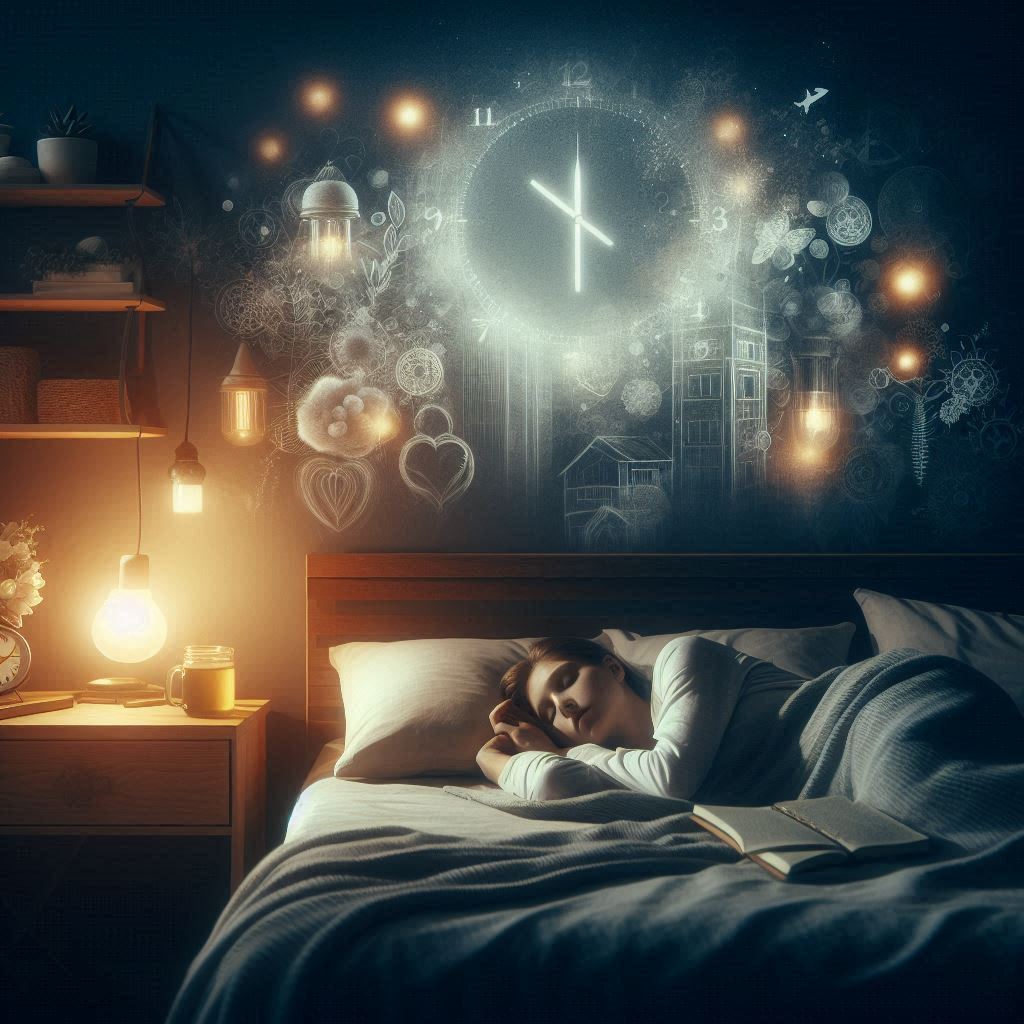
Unraveling the Connection: Sleep Disorders and Their Impact on Anxiety and Depression
This article explores the intricate relationship between sleep disorders and mental health, focusing on how conditions such as insomnia, sleep apnea, and restless leg syndrome can significantly contribute to anxiety and depression. We delve into the scientific evidence linking poor sleep quality with heightened emotional distress, highlighting the bidirectional nature of this connection—how mental health issues can also disrupt sleep patterns. Through an examination of various sleep disorders, their symptoms, and treatment options, we aim to provide readers with insights into the importance of prioritizing sleep for overall mental well-being.
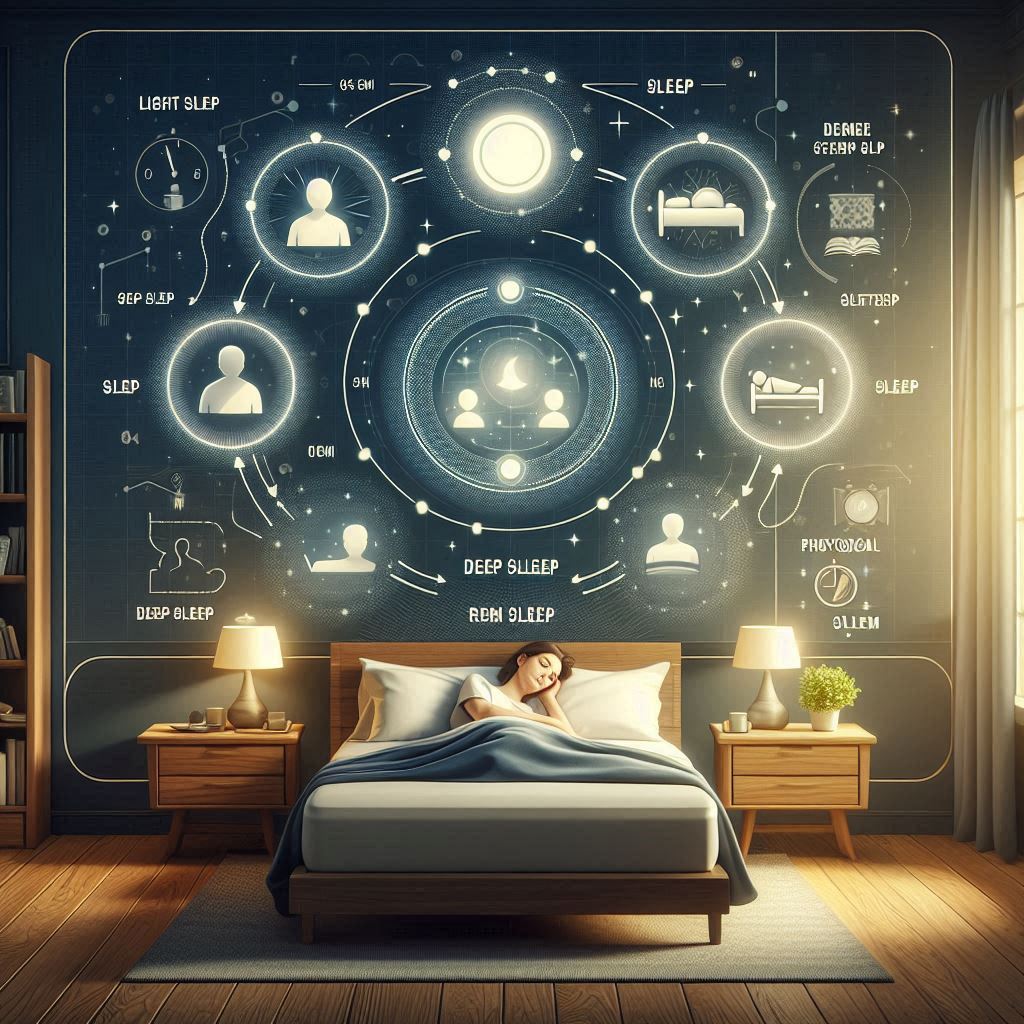
Understanding Sleep Phases: How Each Stage Affects Mood and Cognition
A comprehensive overview of the various stages of sleep and their significant impact on mood and cognitive function. We delve into the sleep cycle, highlighting the differences between REM (Rapid Eye Movement) and non-REM sleep stages, and explain how each phase contributes to mental clarity, emotional stability, and overall well-being. By examining the relationship between sleep quality and mood disorders, we uncover how disruptions in sleep phases can lead to issues like anxiety, depression, and cognitive impairments.
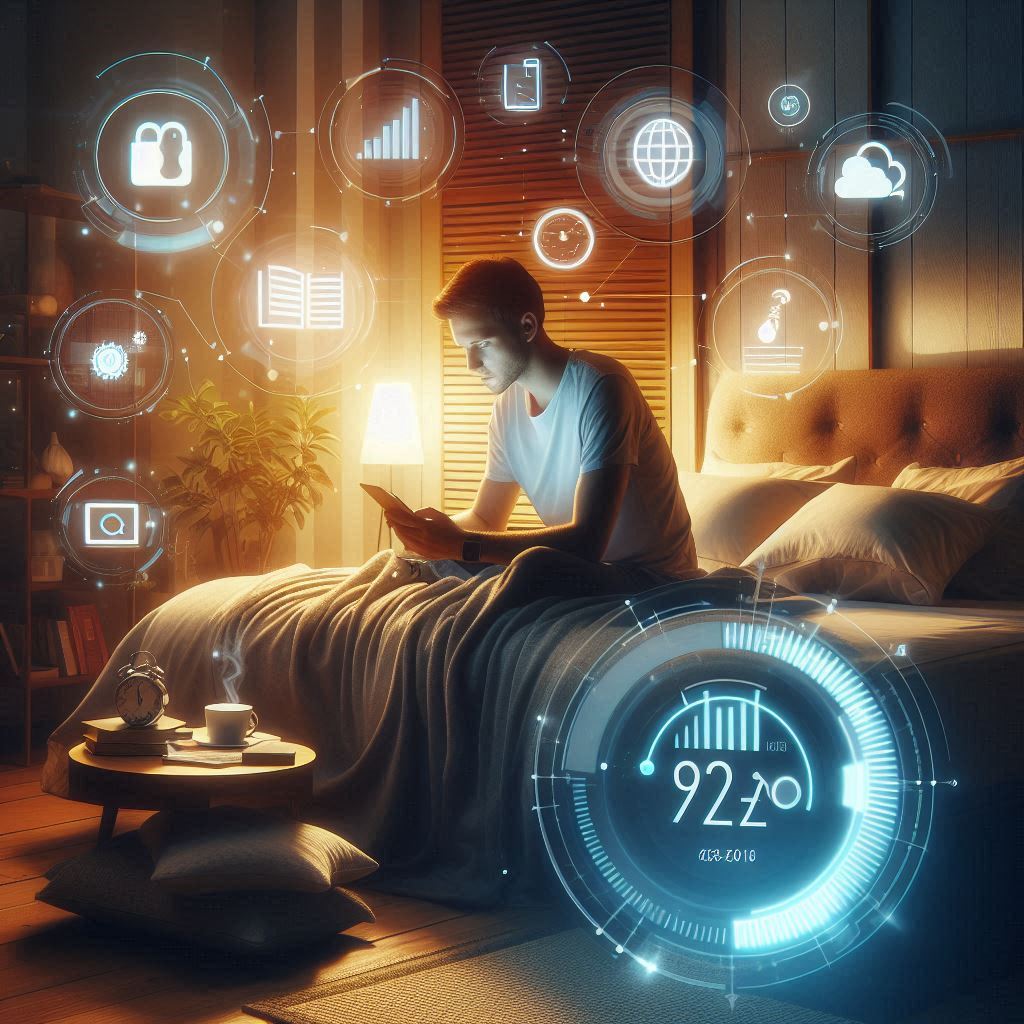
How Technology Shapes Our Sleep and Mental Health: Finding Balance in a Digital Age
In today’s digital age, technology plays a dual role in our lives, offering both conveniences and challenges, particularly regarding sleep and mental health. This article examines how the pervasive use of screens, social media, and digital devices can negatively impact our sleep quality, contribute to anxiety, and exacerbate mood disorders. We explore the mechanisms behind these effects, including blue light exposure, constant connectivity, and the addictive nature of digital interactions.

Nutrition, Sleep, and Mental Health: The Importance of a Balanced Diet
This article explores the critical relationship between nutrition, sleep, and mental health, emphasizing how a balanced diet can enhance overall well-being. We delve into the science behind how specific nutrients—such as omega-3 fatty acids, vitamins, and minerals—affect brain function, mood regulation, and sleep quality. The article highlights the detrimental effects of poor nutrition on mental health, including the risk of anxiety, depression, and sleep disorders. Readers will discover practical dietary strategies for improving sleep hygiene and mental health, including meal planning tips, nutrient-rich foods to incorporate, and foods to avoid before bedtime.

Cognitive Behavioral Therapy for Insomnia: A Path to Better Mental Wellness
Lets explore the benefits of Cognitive Behavioral Therapy for Insomnia (CBT-I) as an effective treatment for individuals struggling with sleep disturbances. CBT-I is a structured program that helps address the thoughts and behaviors that contribute to insomnia, focusing on developing healthier sleep patterns and improving overall mental wellness. By identifying negative thought patterns and implementing practical strategies, such as sleep scheduling, relaxation techniques, and cognitive restructuring, readers can learn how to combat insomnia and enhance their sleep quality. This article also discusses the importance of seeking professional guidance and offers insights into how CBT-I can lead to long-term improvements in both sleep and mental health.
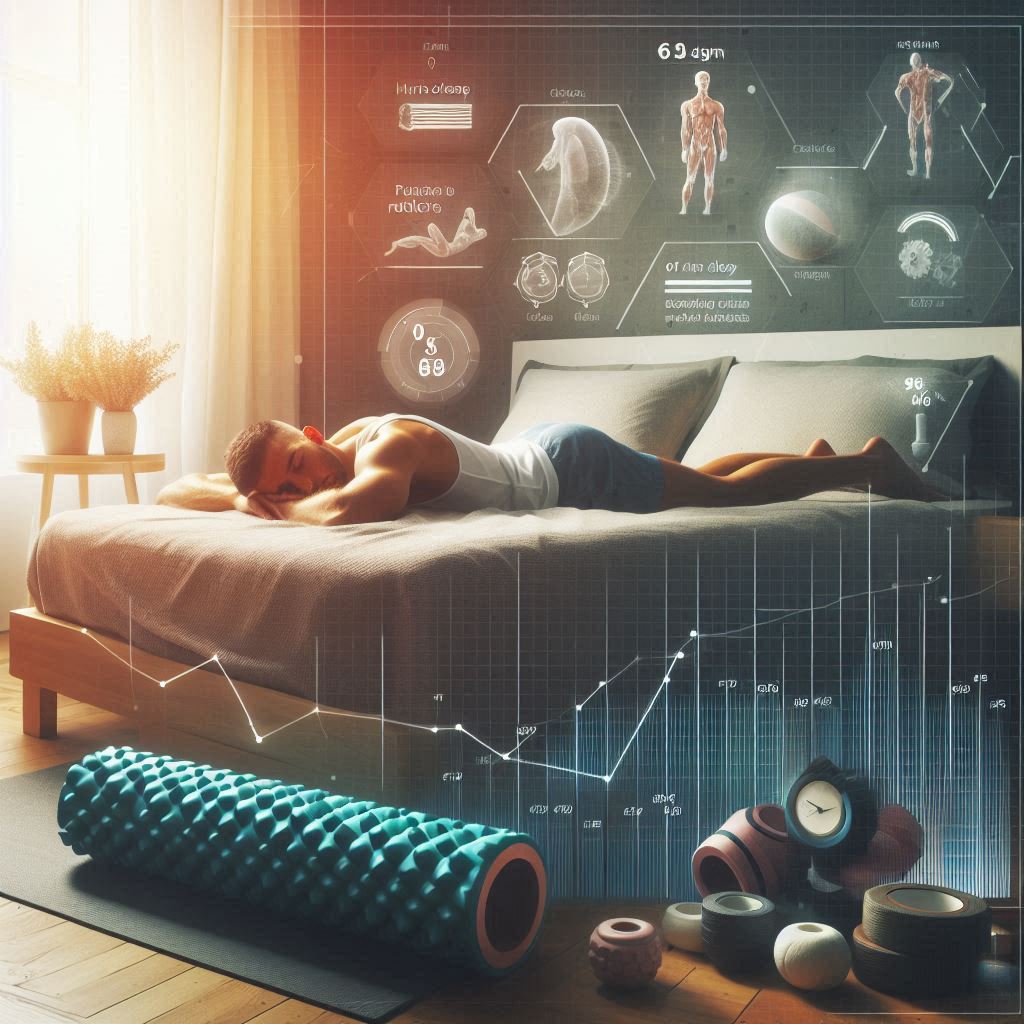
The Sleep-Muscle Connection: Why Recovery Matters
This article delves into the critical relationship between sleep and muscle recovery, emphasizing how restorative sleep is essential for optimizing athletic performance and overall health. It explains the physiological processes that occur during sleep, such as protein synthesis and hormone release, which are vital for muscle repair and growth. Readers will learn about the consequences of inadequate sleep on recovery, including increased muscle soreness, diminished strength, and impaired cognitive function. The article also provides practical tips for improving sleep hygiene, such as establishing a regular sleep schedule, creating a conducive sleep environment, and incorporating relaxation techniques.
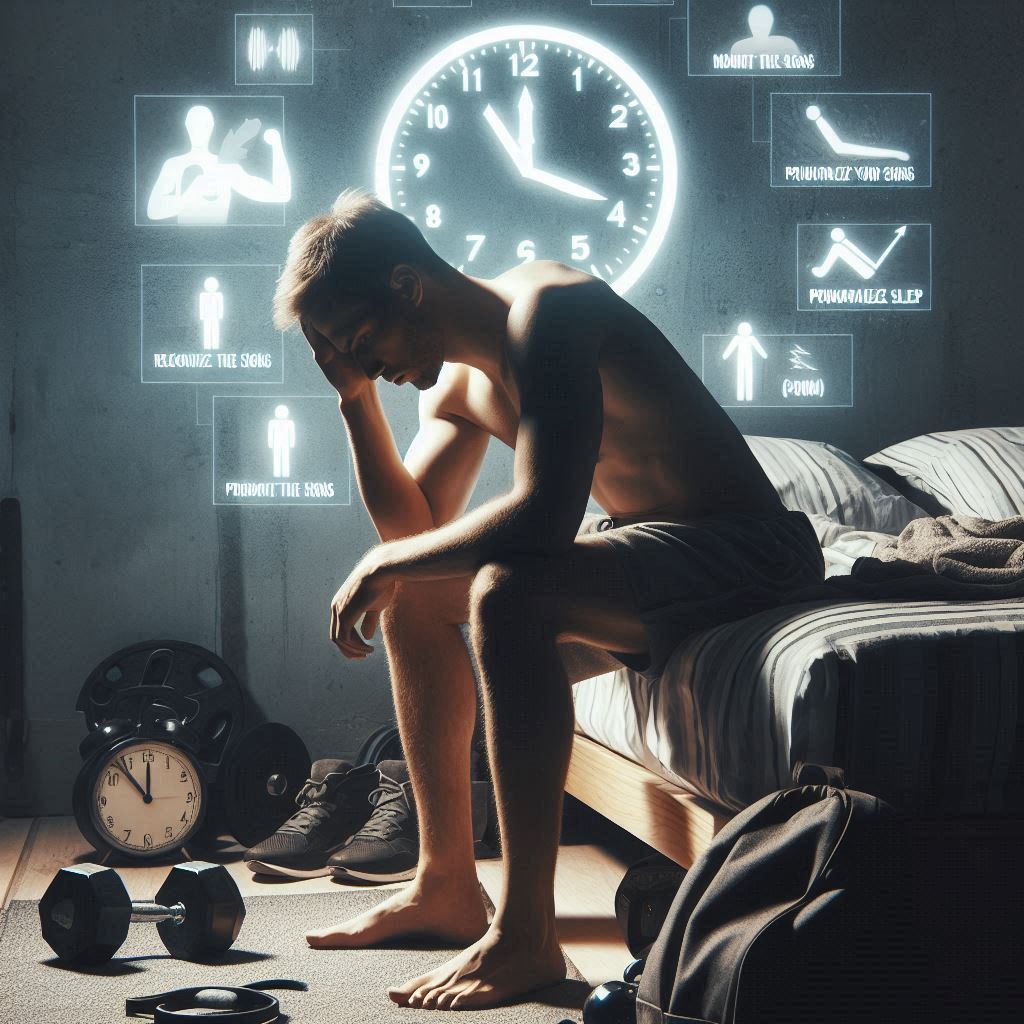
When to Seek Help: Recognizing Sleep Disorders in Active Lifestyles
Lets focus on the importance of recognizing sleep disorders that can affect individuals with active lifestyles, including athletes and fitness enthusiasts. It outlines common sleep disorders such as insomnia, sleep apnea, and restless legs syndrome, emphasizing how these conditions can disrupt sleep quality and, in turn, hinder physical performance and overall well-being. Readers will learn to identify the signs and symptoms of these disorders, including persistent fatigue, difficulty concentrating, and mood swings, which may indicate a deeper issue requiring professional intervention.
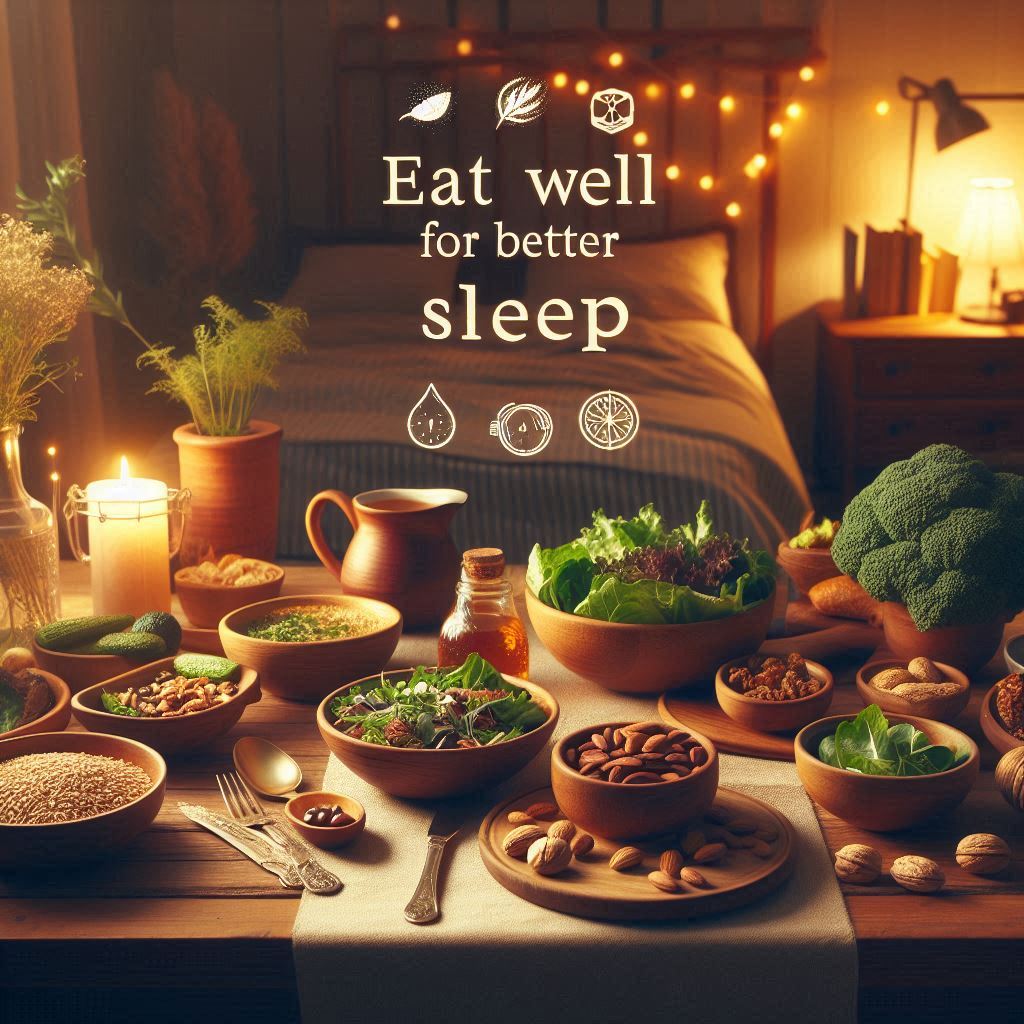
Eat Well, Sleep Well: Nutrition’s Role in Restful Nights
This article examines the significant impact of nutrition on sleep quality, exploring how the foods we consume can influence our ability to achieve restful nights. It highlights key nutrients and foods that promote better sleep, such as those rich in magnesium, tryptophan, and melatonin. Readers will learn about the importance of maintaining a balanced diet, avoiding heavy meals before bedtime, and the role of hydration in sleep health. The article also addresses the negative effects of processed foods, caffeine, and sugar on sleep patterns, encouraging readers to make mindful dietary choices that can enhance their overall well-being.
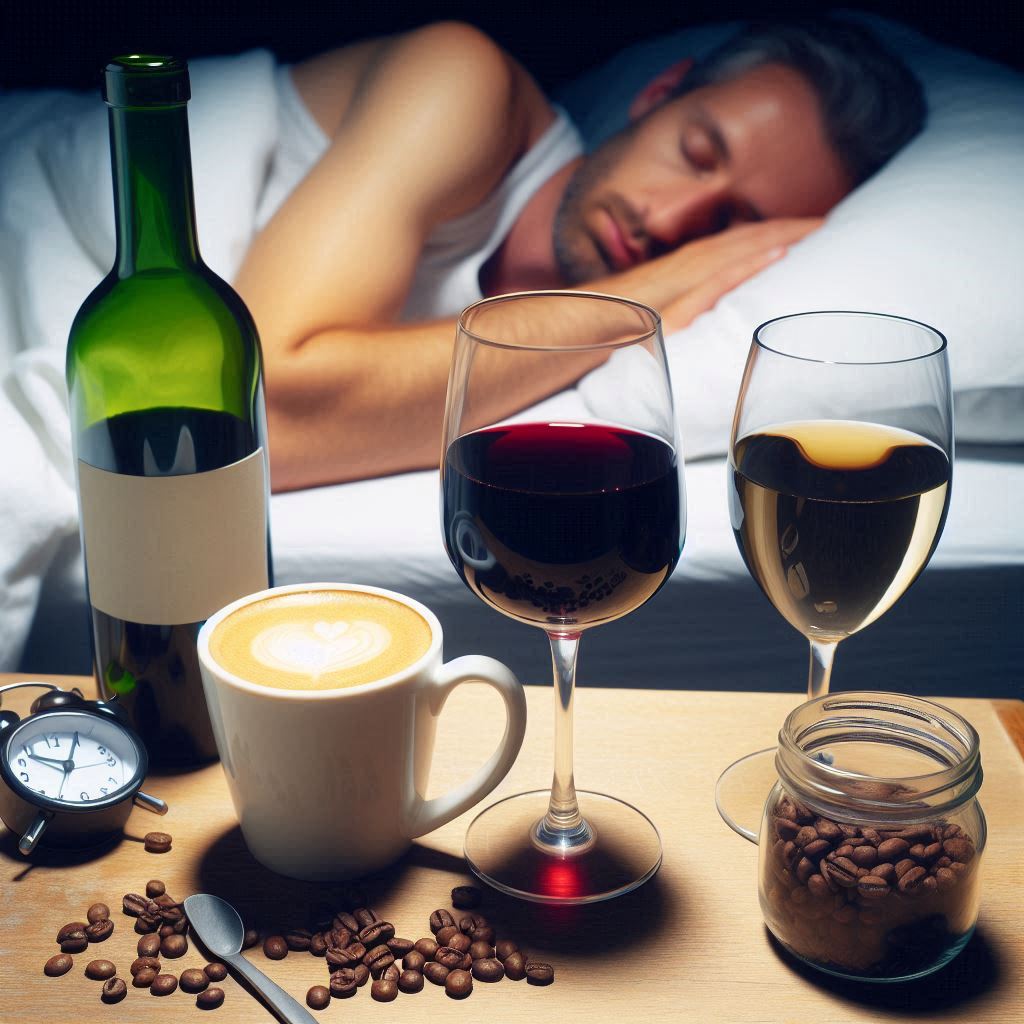
The Impact of Caffeine and Alcohol on Sleep: What You Need to Know
Explore how caffeine and alcohol influence your sleep quality. Learn the science behind how these popular substances impact your sleep patterns, and discover tips for better rest while still enjoying your favorite drinks responsibly.

The Role of Diet in Sleep: Foods to Eat and Avoid Before Bed
Uncover how your diet can impact your sleep quality. Learn which foods promote restful sleep and which ones might be keeping you awake. From nutrient-rich snacks that help you wind down to foods that disrupt your sleep cycle, discover how to tailor your diet for better rest.

Sleep and Immune System Resilience: A Deep Dive
Sleep, an essential pillar of health, plays a fundamental role in regulating the immune system. While its restorative properties are often associated with cognitive and emotional well-being, emerging research underscores its pivotal impact on physical health, particularly immunity.
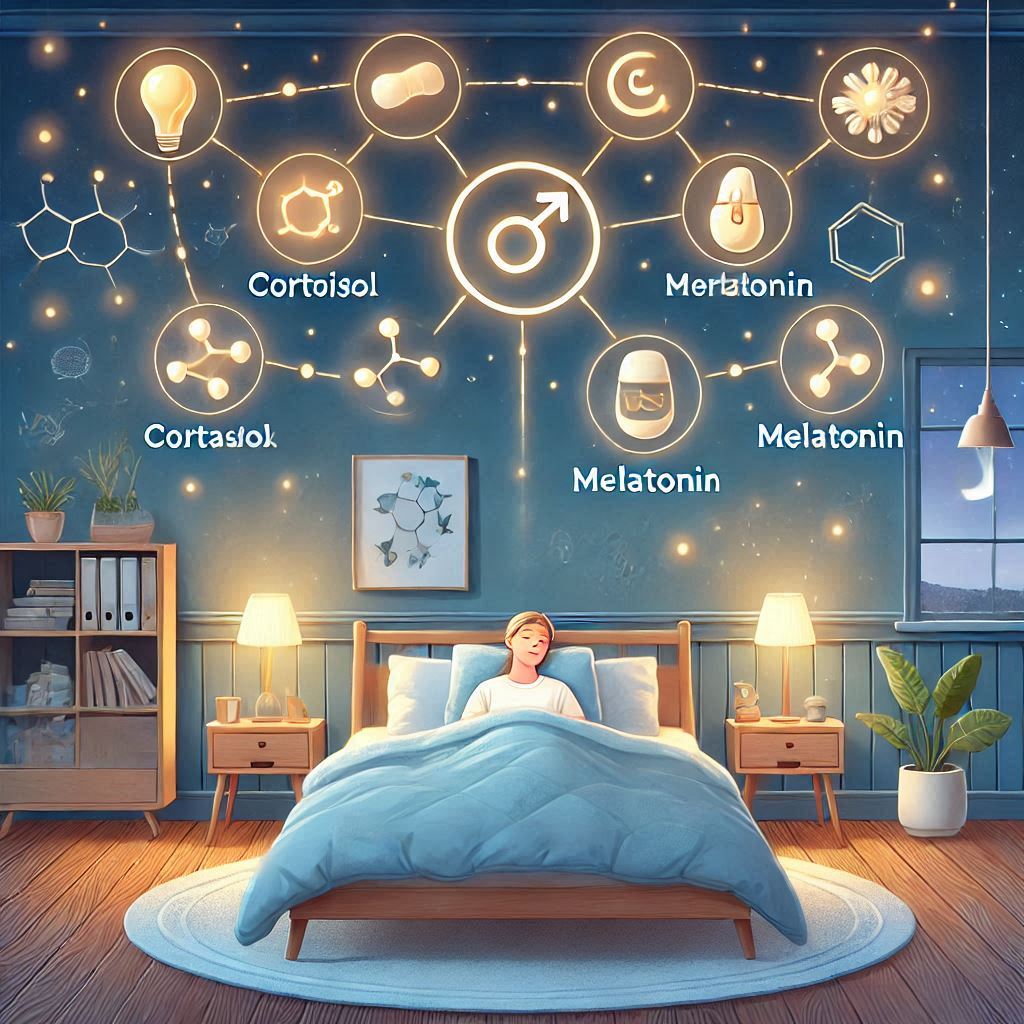
Hormonal Health and Sleep: What You Need to Know
Hormones are chemical messengers that regulate many of the body’s key functions, including metabolism, growth, mood, immune function, and reproductive health. They are produced by glands such as the thyroid, pituitary, adrenal glands, and gonads (ovaries and testes).
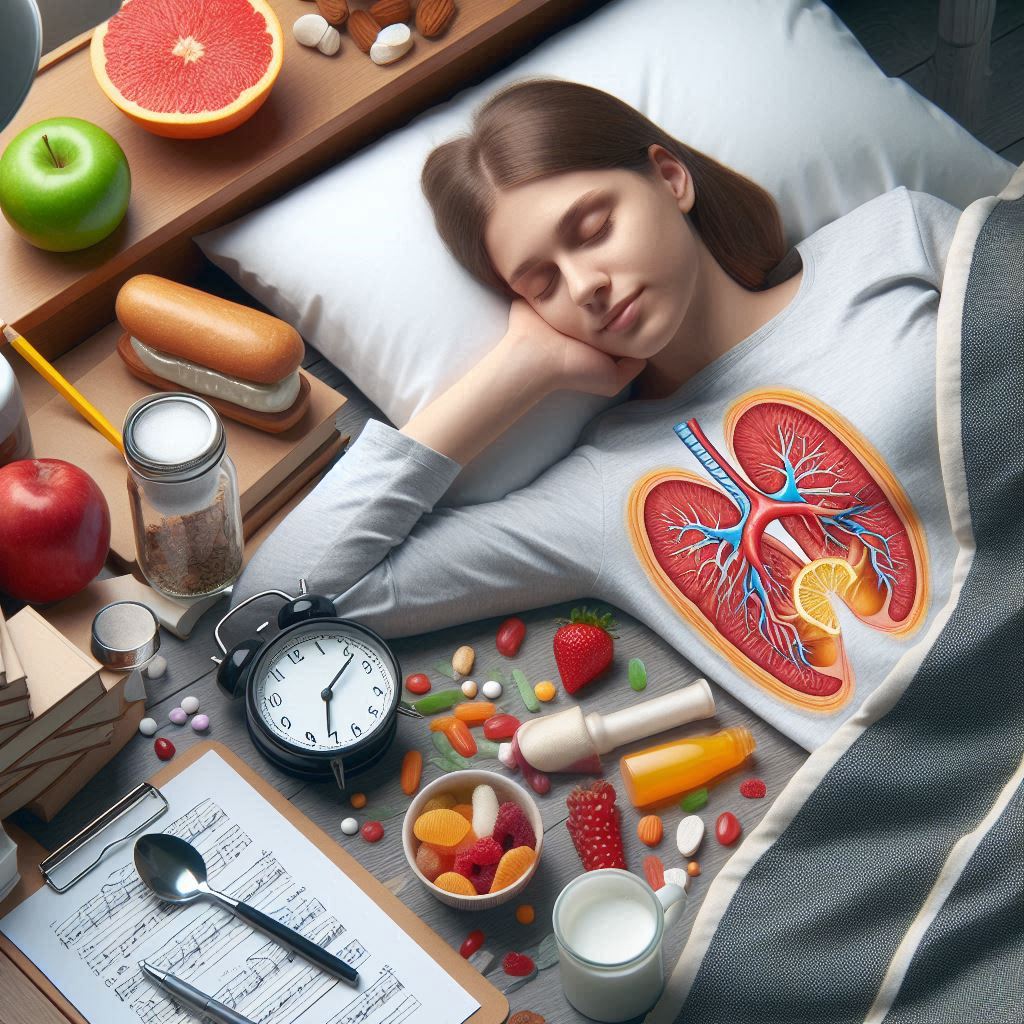
Sleep as a Preventative Tool for Metabolic Disorders
The importance of sleep for overall health, particularly in the prevention of metabolic disorders, cannot be overstated. Metabolic disorders such as obesity, type 2 diabetes, and cardiovascular disease are on the rise globally, posing significant health risks and burdening healthcare systems worldwide.

Sleep Deprivation and Cellular Aging: The Science of Staying Young
Cellular aging is a multifaceted process that reflects the progressive decline in cellular function and structural integrity over time. At the core of cellular aging are three pivotal processes: telomere shortening, mitochondrial dysfunction, and increased oxidative stress, all of which contribute to tissue degradation and organ system failure as we age.
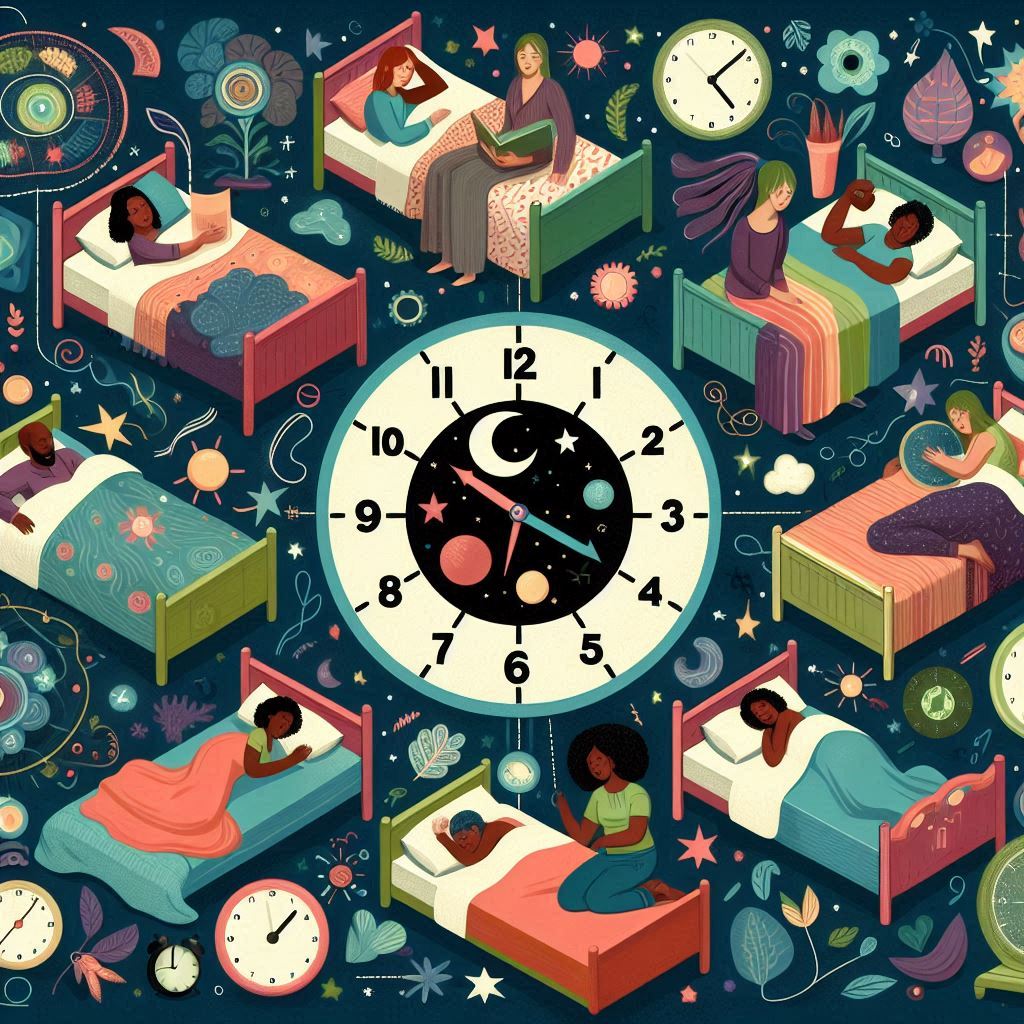
Chronobiology and Sleep: Harnessing the Power of Your Body Clock
Chronobiology is the study of biological rhythms and their alignment with environmental cues. These rhythms are fundamental in regulating the body’s processes, including sleep-wake cycles, metabolism, hormone release, and body temperature.
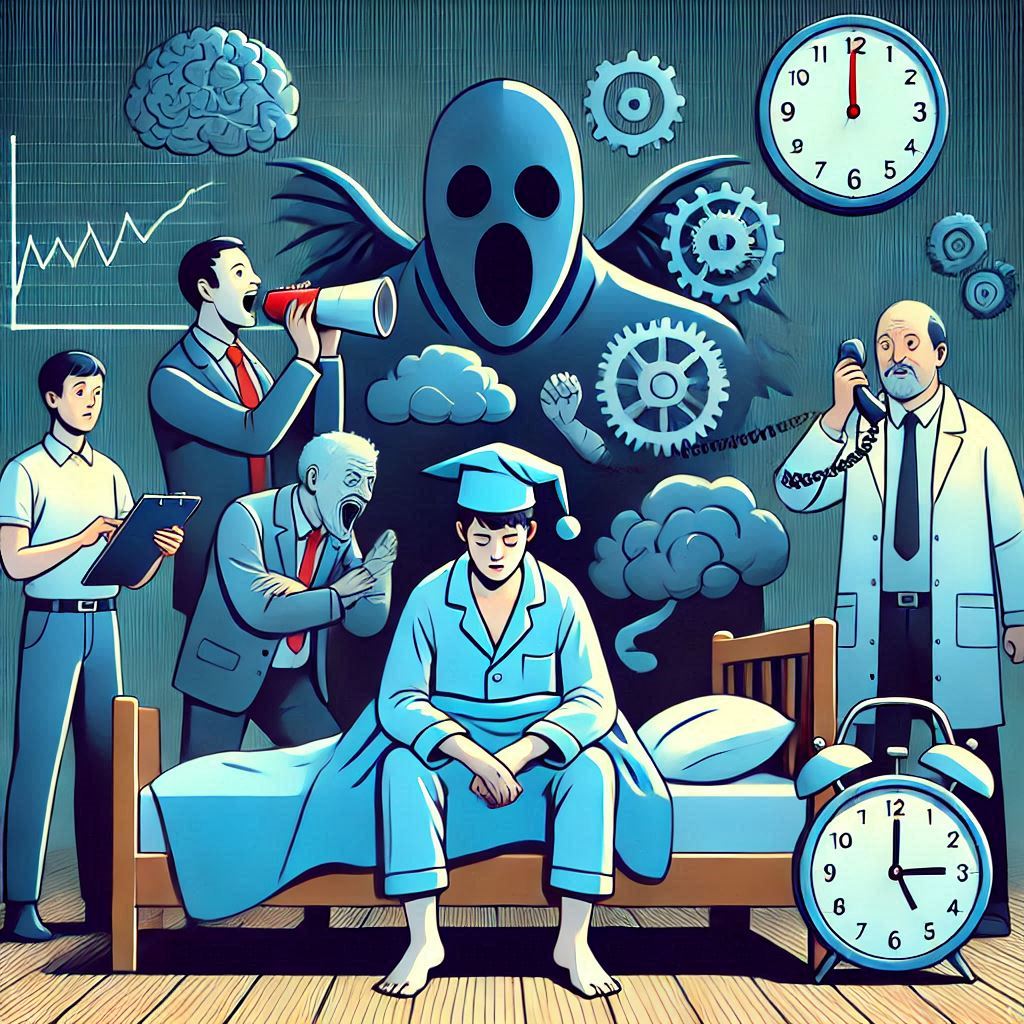
Silent Epidemic: How Sleep Deprivation Undermines Public Health
Sleep deprivation is a pervasive yet often overlooked public health crisis that affects millions of individuals worldwide. Despite its critical role in maintaining physical, mental, and emotional well-being, sleep remains undervalued in modern society.
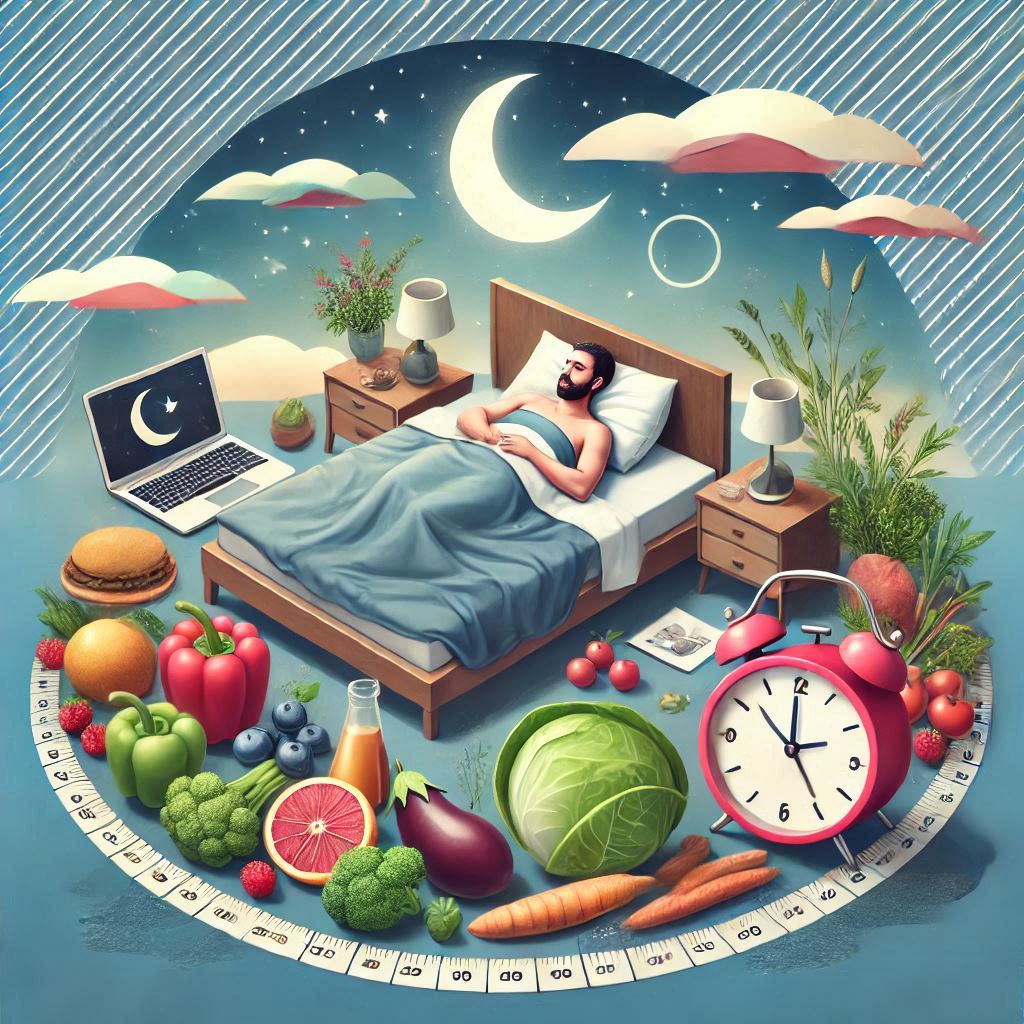
The Holistic Path: Integrating Sleep into a Wellness-Focused Lifestyle
Sleep is not merely a time of rest; it is an essential process that restores both the body and mind, contributing to physical, emotional, and mental well-being.
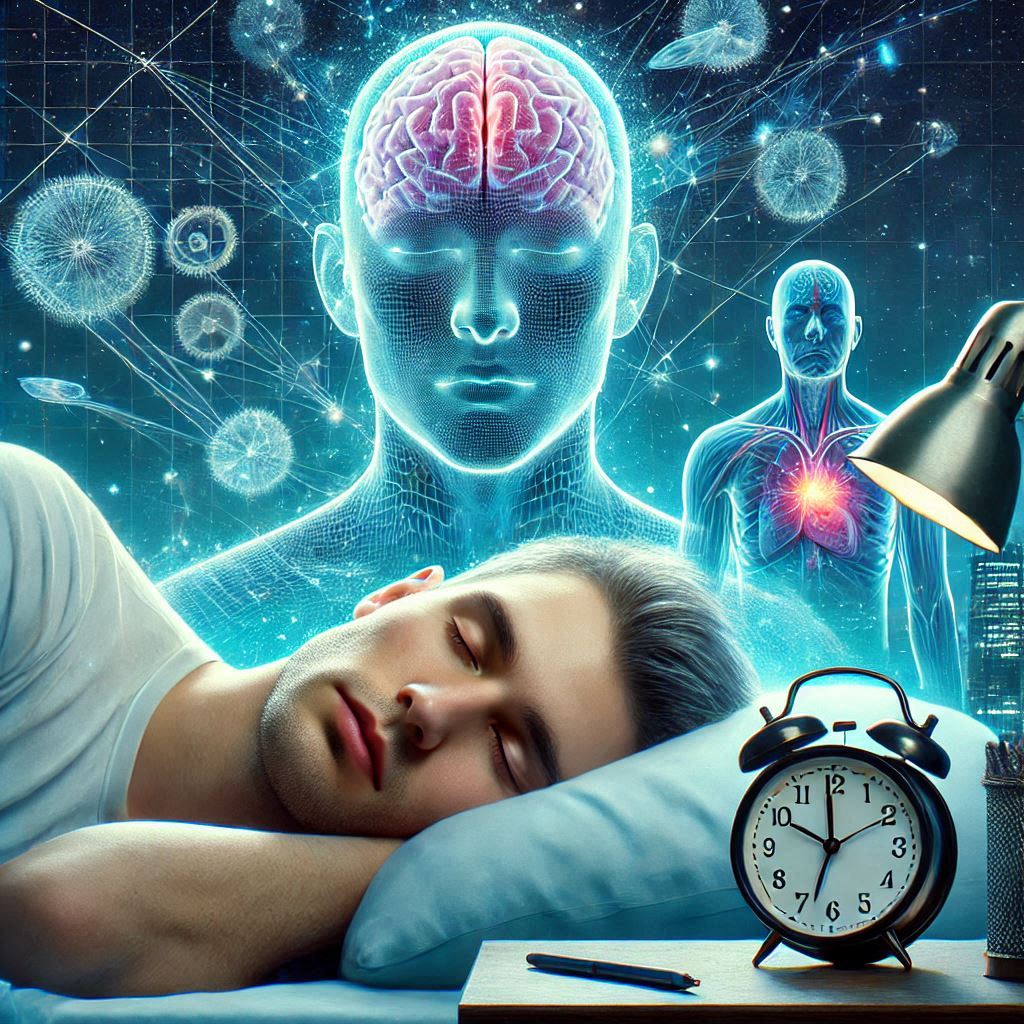
The Science of Sleep: How Your Body and Mind Regenerate Overnight
Sleep is not merely a state of rest; it is an essential biological process that supports the body’s physical health, mental well-being, and overall vitality. Understanding the intricacies of sleep reveals why it is so critical for maintaining a healthy lifestyle.
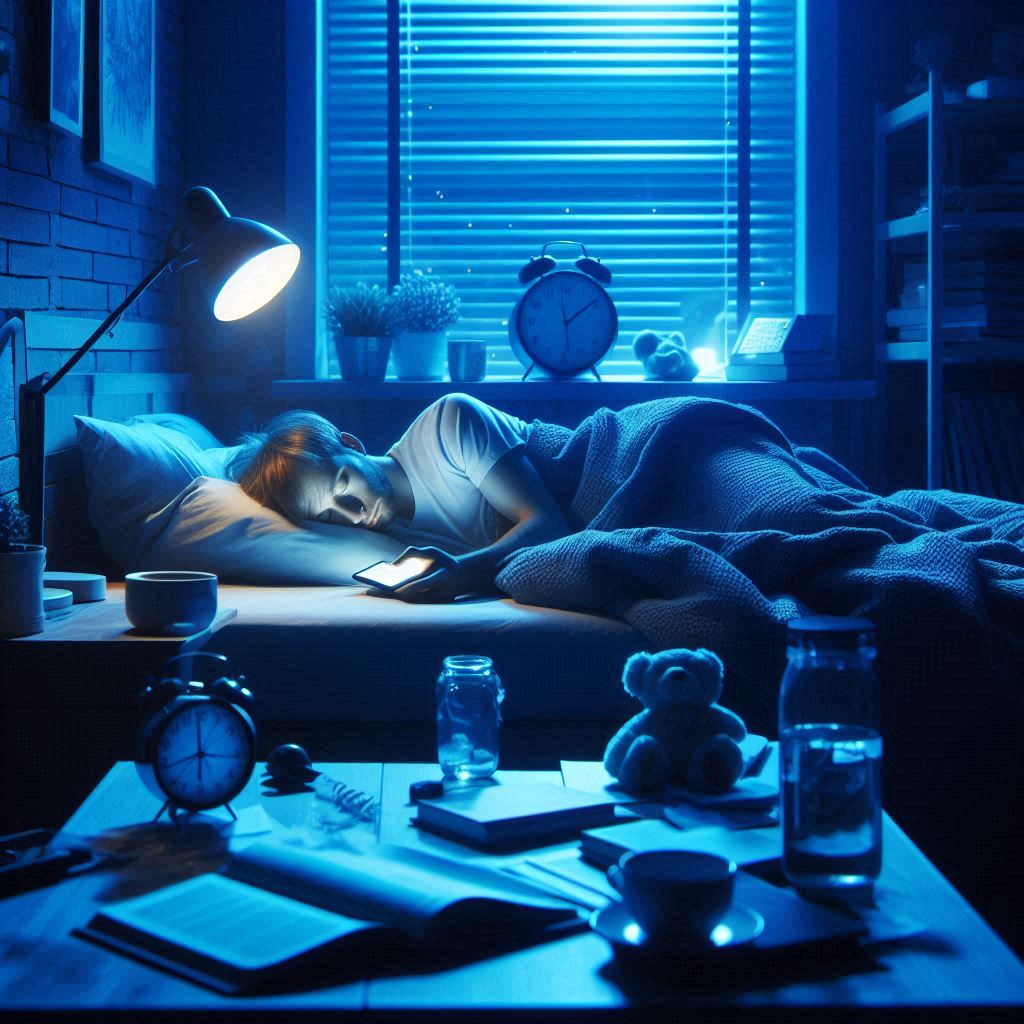
Screens and Sleepless Nights: How Blue Light is Disrupting the Sleep of a Generation
Whether it’s for schoolwork, socializing with friends, or entertainment, screens have become an integral part of daily life. However, the consequences of excessive screen exposure, particularly before bedtime, are becoming increasingly apparent.

Onset Delays – The Role of Screen Time Before Bed in Sleep
The body’s internal clock, known as the circadian rhythm, regulates a variety of biological processes, including the sleep-wake cycle. This rhythm operates on a roughly 24-hour cycle, syncing with the natural light-dark patterns of the environment.

Late-Night Screen Time Impacts in Children and Adolescents
The widespread use of digital devices—smartphones, tablets, laptops, and video game consoles—has revolutionized the way children and adolescents engage with the world. However, alongside the benefits of connectivity and entertainment, there has been growing concern about the negative effects of excessive screen time on sleep quality.
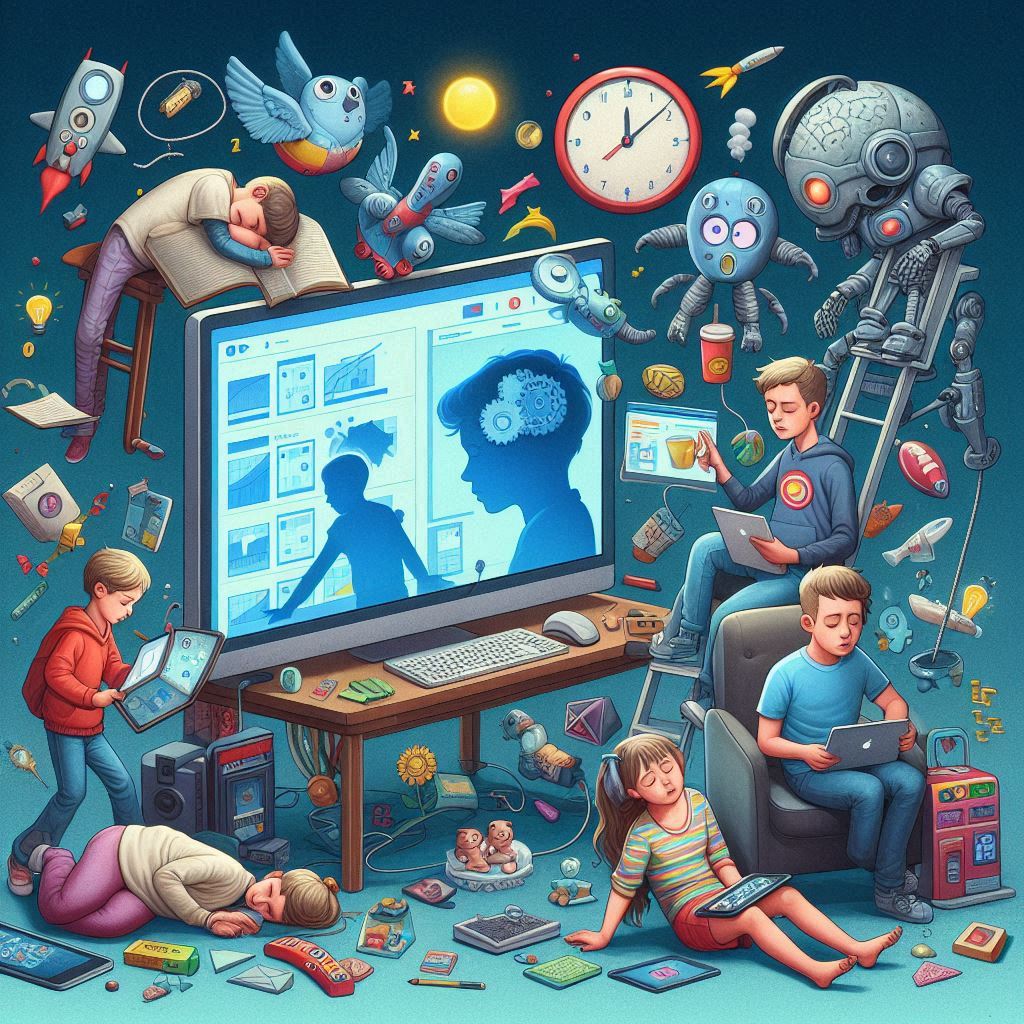
Screens, Sleep, and the Struggle for REM: Cognitive Growth in Kids and Teens
One of the most concerning effects of excessive screen exposure is its potential impact on sleep quality, particularly on REM sleep. Rapid Eye Movement (REM) sleep is a crucial phase of the sleep cycle responsible for cognitive development, emotional regulation, memory consolidation, and learning.

Setting Healthy Boundaries: How Parents Can Manage Screen Time to Promote Better Sleep
From smartphones and tablets to computers and televisions, children have greater access to screens than ever before. While technology has its educational and entertainment benefits, its excessive use—especially before bedtime—can have significant consequences for children’s sleep health.

Educational vs. Recreational Screen Time: Which One Affects Sleep More?
With increasing concerns about the impact of screen time on sleep, particularly as children spend more time using devices in the evening, it is important to understand how different types of screen time—educational and recreational—affect sleep differently.
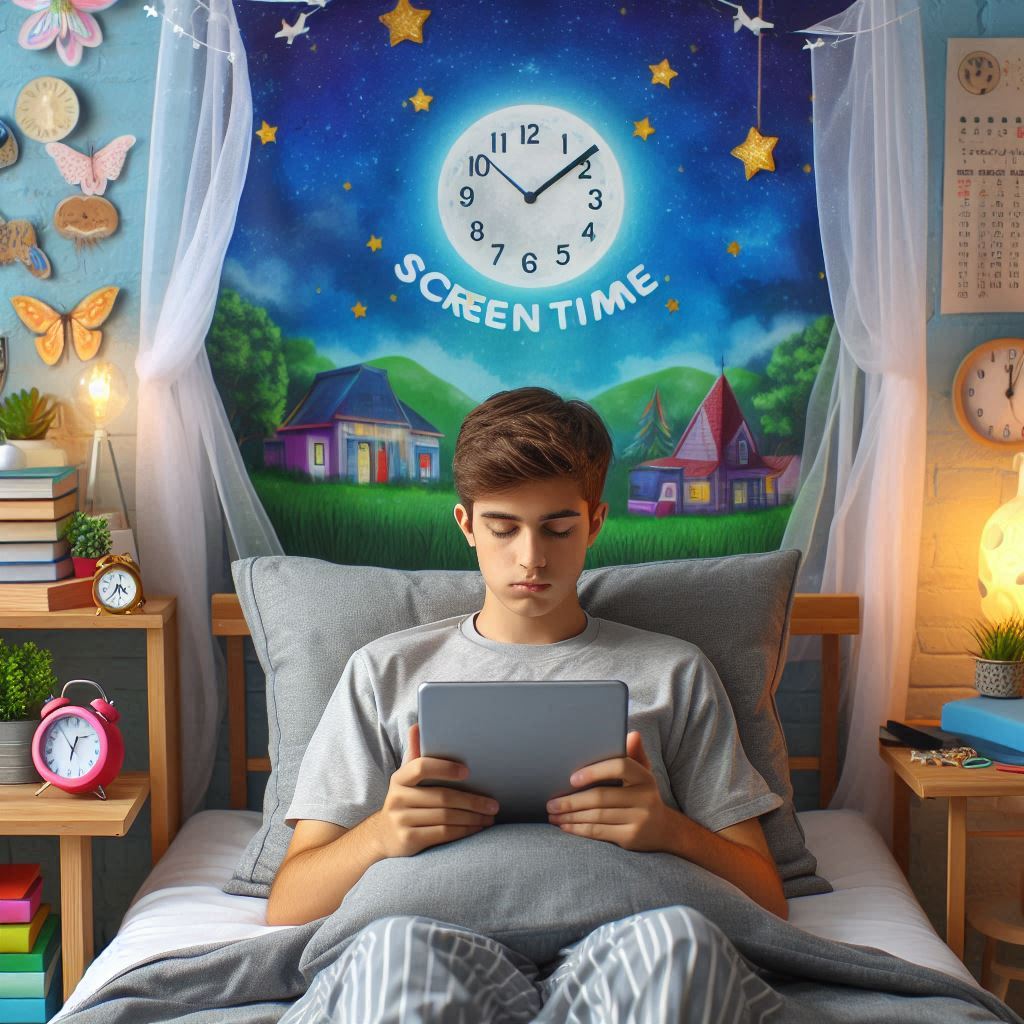
Sleep Hygiene and Screen Time: A Comprehensive Approach to Improving Adolescent Sleep
Adolescence is a critical period of physical, mental, and emotional development, marked by significant changes in sleep patterns. The demands of school, extracurricular activities, social interactions, and, increasingly, digital engagement often collide to disrupt adolescents’ sleep schedules and overall sleep quality. With screen time playing an increasingly pervasive role in the daily lives of adolescents, it is essential to understand its impact on sleep and how it can be managed effectively.

Scrolling into Sleeplessness: Social Media is Disrupting Sleep, What to Do About It
Whether it’s staying connected with friends, exploring personal interests, or sharing experiences, platforms like Instagram, TikTok, Twitter, and Facebook offer teens a way to express themselves and interact socially in a manner that was previously unavailable. However, as much as these platforms provide opportunities for connection and self-expression, they also bring a series of challenges, particularly in the context of adolescents’ sleep patterns.
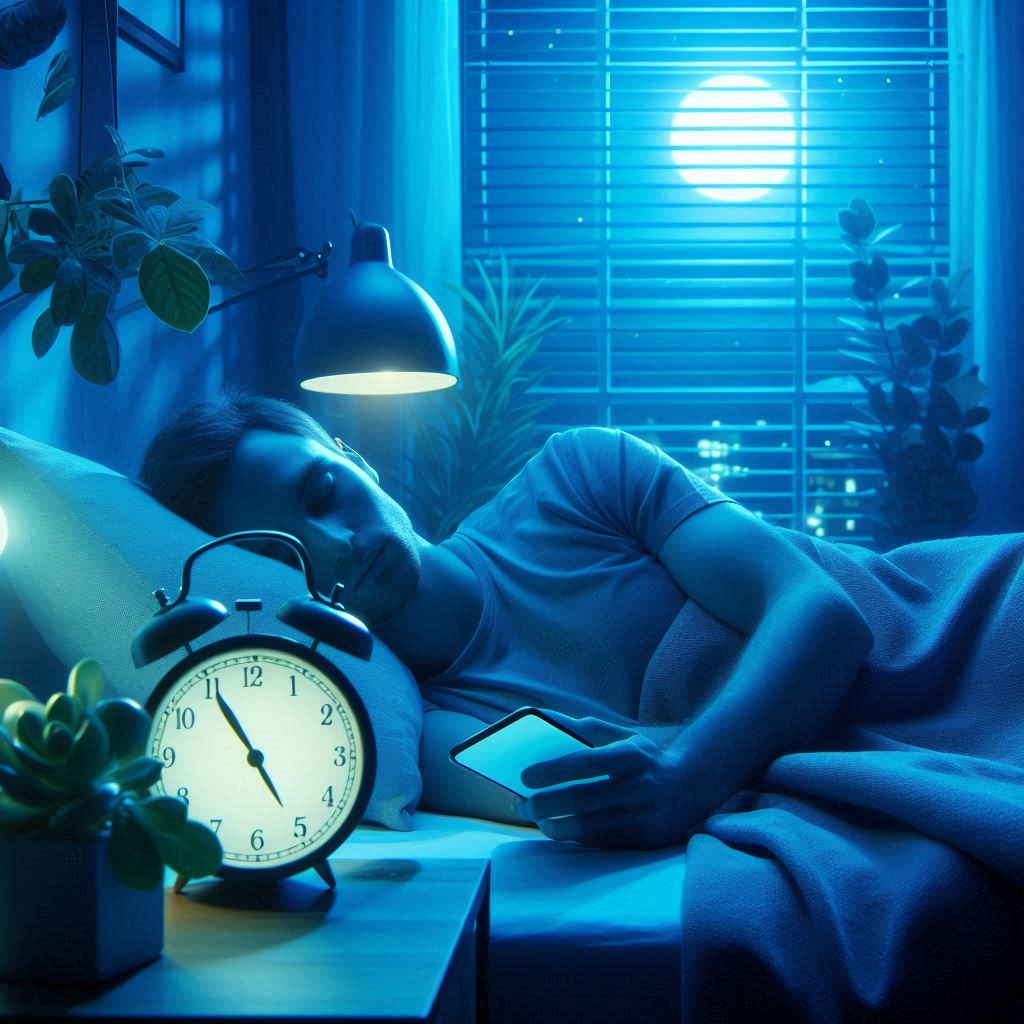
How Blue Light Filters and Apps Can Help You Sleep Soundly
Blue light has been shown to disrupt our sleep cycles, particularly in the evening when our bodies are preparing for rest. With the growing awareness of this issue, blue light filters and apps have emerged as practical solutions to help mitigate the effects of excessive screen time on our sleep quality.
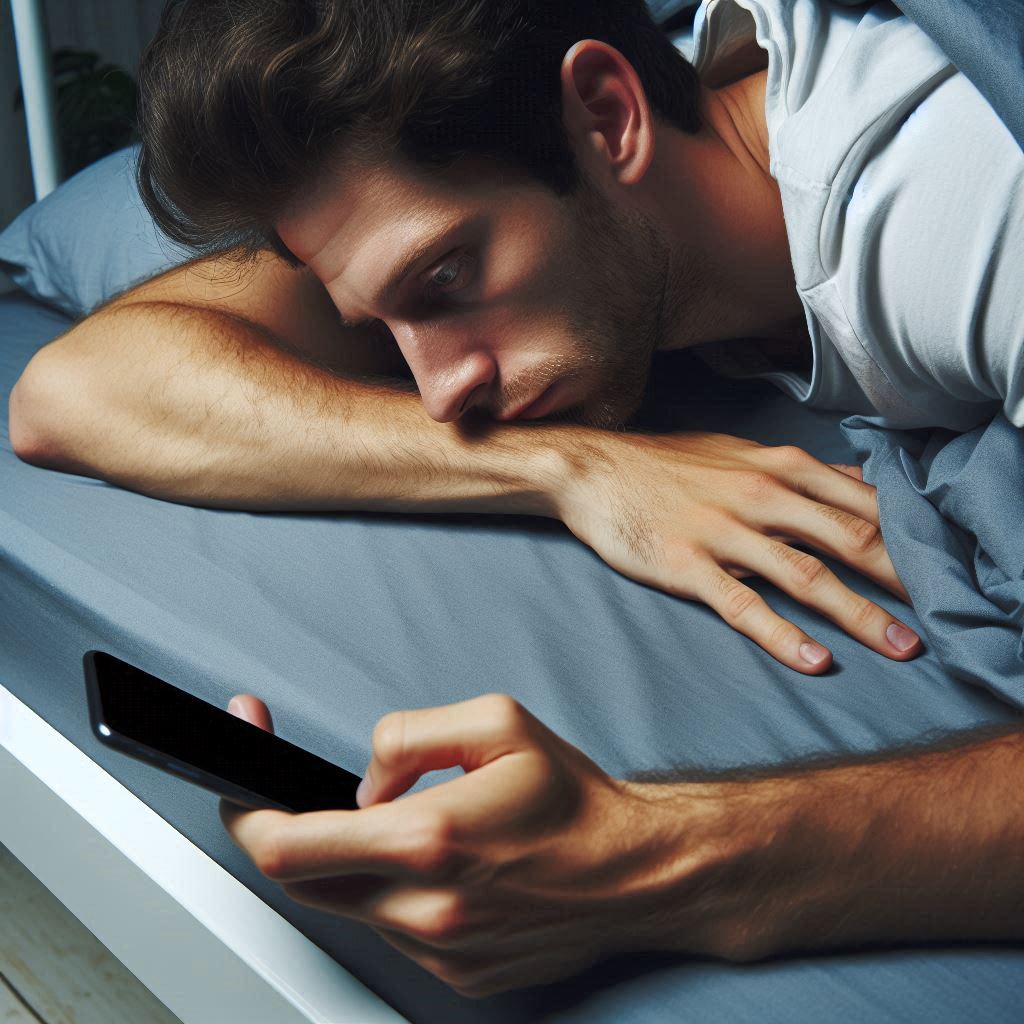
The Science Behind Screen Time and Melatonin Disruption
Whether it’s smartphones, tablets, laptops, or televisions, we find ourselves constantly connected. While technology offers unprecedented convenience, it also brings unintended consequences—particularly when it comes to sleep health. One of the most significant and often overlooked impacts of screen use is its interference with melatonin production, a hormone essential for regulating sleep.
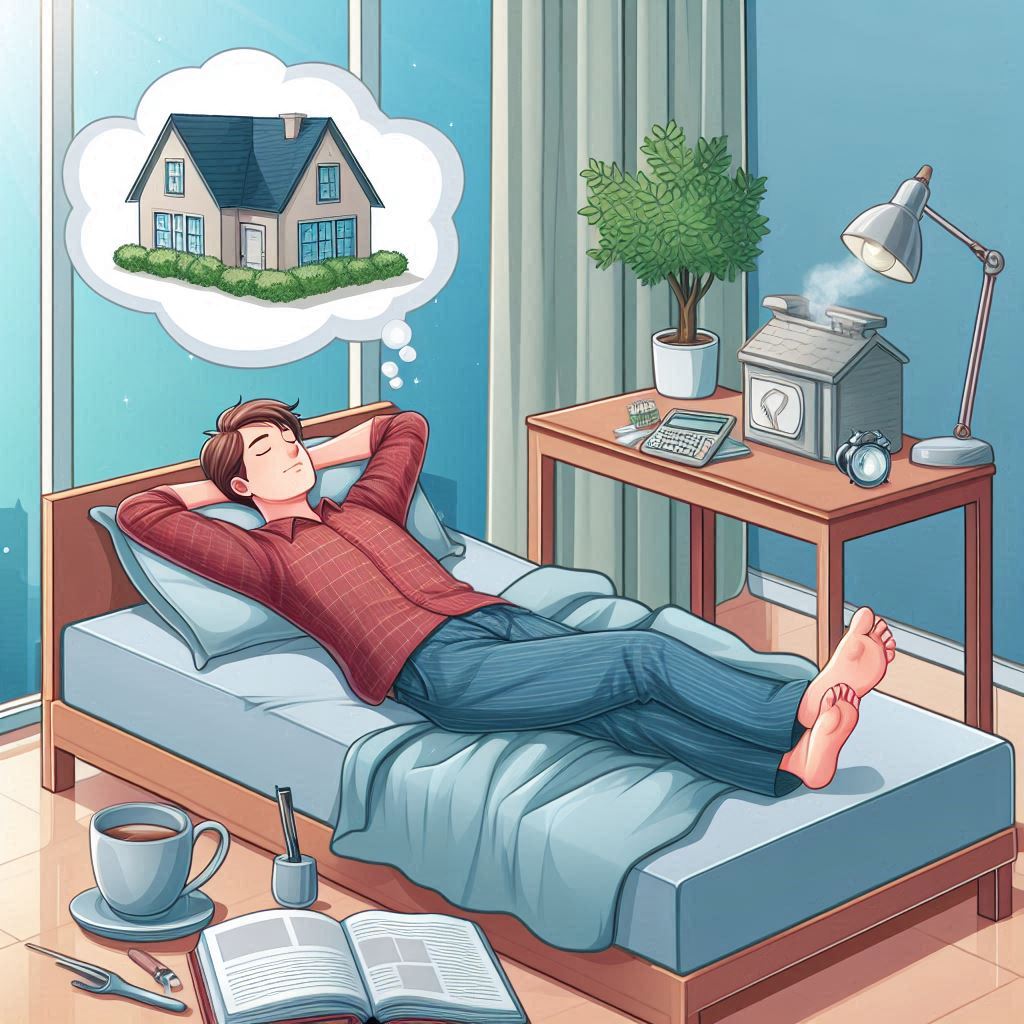
How Creating a Tech-Free Bedroom Can Transform Your Sleep
Studies have shown that excessive screen time, particularly before bed, can disrupt the body’s natural sleep-wake cycle, primarily due to blue light emitted from devices that suppress melatonin, the hormone responsible for signaling sleep.
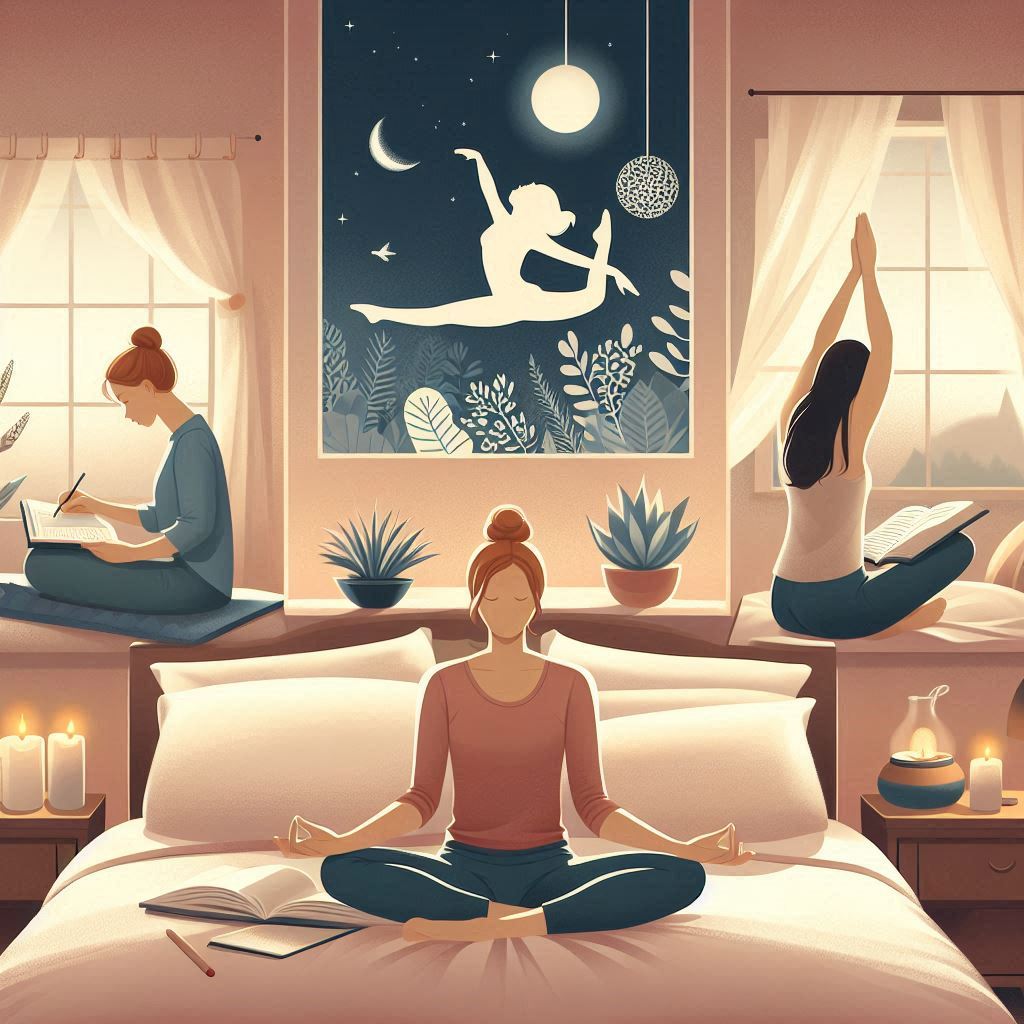
Top Sleep-Friendly Activities to Do Instead of Scrolling Before Bed
However, this constant exposure to screens, especially before bed, can have detrimental effects on our sleep. The blue light emitted from digital devices interferes with melatonin production, disrupting our body’s natural sleep-wake cycle. As a result, falling asleep can become challenging, and sleep quality can diminish.
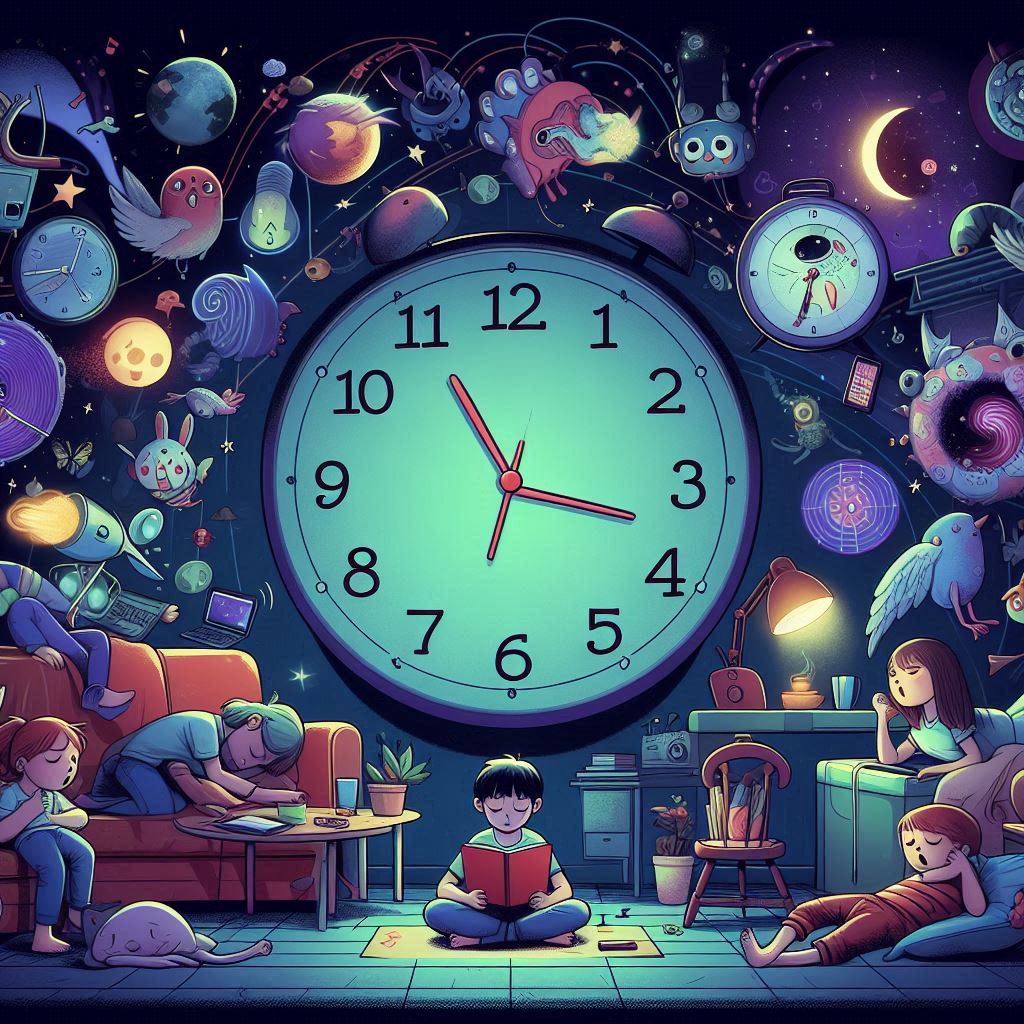
How Screen Time Affects the REM Sleep Cycle in Children and Teens
Sleep is essential for overall health and well-being, especially for children and teenagers who are still undergoing significant cognitive and physical development. During sleep, the body repairs itself, consolidates memories, and regulates emotions. REM sleep, one of the most critical stages of the sleep cycle, plays an especially important role in these processes.

Setting Healthy Boundaries: How Parents Can Manage Screen Time to Promote Better Sleep
The increasing reliance on devices for entertainment, communication, and education has brought about a host of challenges, one of which is its impact on sleep. Quality sleep is essential for children and teens, supporting cognitive development, emotional regulation, and overall health.

Cognitive Overload and Sleepless Nights: How Screen Time Disrupts ADHD Sleep Patterns
Children with ADHD often experience difficulties with attention, impulse control, and hyperactivity, all of which can influence their daily lives, academic performance, and social relationships.

The Importance of Sleep Hygiene for Adolescents
Sleep plays a critical role in adolescents’ physical health, emotional well-being, and cognitive development. Adolescence is a time of significant change, not just in terms of physical growth but also in terms of emotional and cognitive development.

Screen Time Smarts: Balancing Tech Use for a Healthier, Happier Family?
For families, navigating how much screen time is appropriate for children, teens, and even adults is a balancing act that requires careful consideration and planning. While technology offers numerous benefits—such as educational tools, entertainment, and connectivity—it also comes with potential downsides, including negative health effects, social isolation, and decreased family interaction.

Creating Screen-Free Zones: Importance of Physical Spaces for Face-to-Face Interaction
Many families, educators, and experts are recognizing the need to establish boundaries around screen use, especially within the home environment. Among the various strategies for achieving a healthy balance of technology use, creating screen-free zones in the home is a topic of growing interest.

Screen Time, Screen Together: How Families Can Bond, Learn, and Play in the Digital Age
The question arises: How can families incorporate shared screen time for educational content, video games, or movie nights that allow everyone to participate together while also managing the increasing demands of work and school screen time?

Modeling Healthy Screen Habits and Discussing Content Appropriateness for Families
With smartphones, tablets, computers, and TVs, screens are now ubiquitous in everyday life. For families, the question of how to manage and balance screen time is a central challenge. Parents and caregivers play a critical role in shaping how children engage with screens, both by modeling healthy screen habits and by guiding conversations around the content consumed.

Creating a Digital Curfew: How Limiting Screen Time at Night Improves Sleep
Understanding how screens affect sleep requires a deeper dive into the biological process of sleep regulation. Sleep is not merely a passive state of rest, but an active biological process that is crucial for our physical and mental health. It’s governed by our circadian rhythm—the internal clock that regulates our sleep-wake cycle—and is influenced heavily by environmental factors, particularly light.
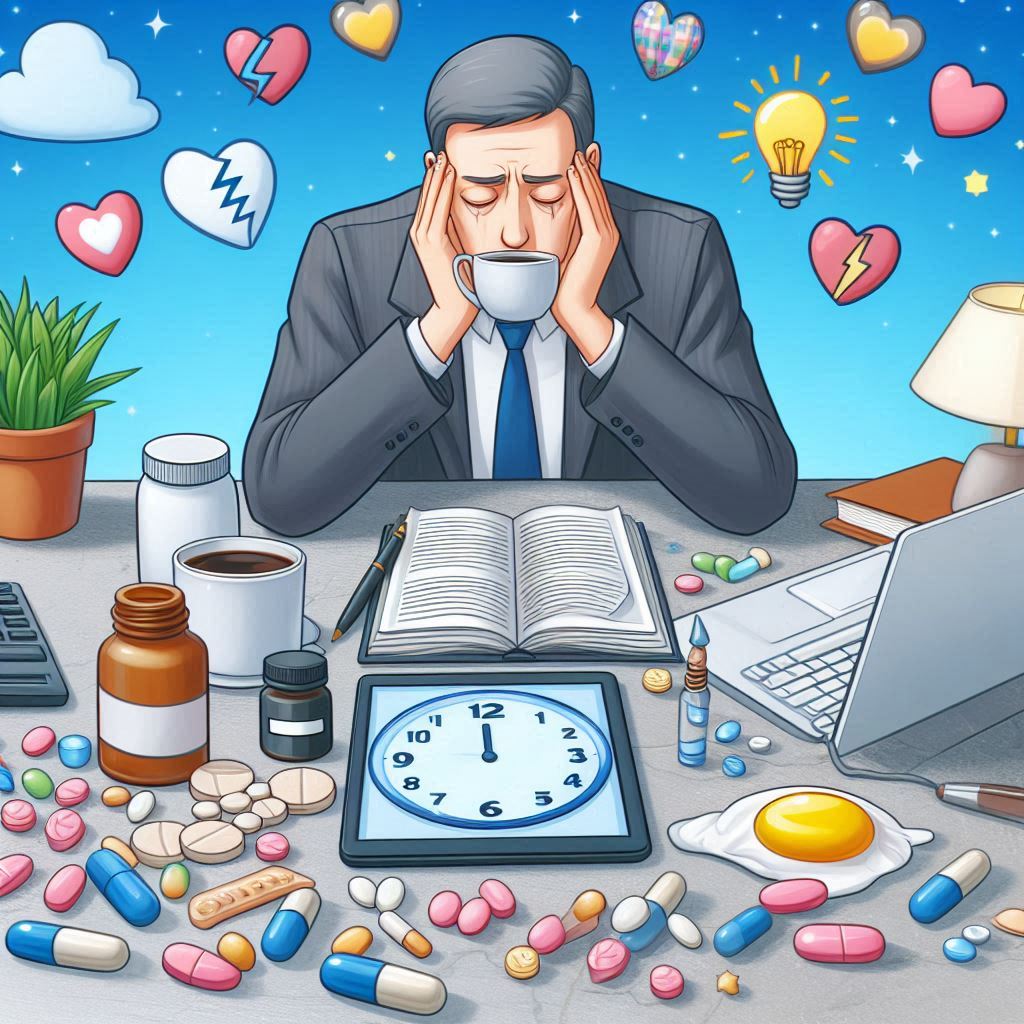
How to Choose the Right Supplements to Counteract Screen-Induced Sleeplessness
Supplements such as melatonin, magnesium, and valerian root have gained popularity for their potential to promote relaxation and enhance sleep. In this essay, we will explore how these natural supplements can be used to counteract the negative effects of screen exposure, the science behind each supplement, and practical advice for choosing the right one for individual needs.

Unplug to Recharge: How Tracking Your Screen Time Can Unlock Better Sleep
Blue light, while essential for daytime alertness, disrupts the body’s production of melatonin, the hormone responsible for regulating the sleep-wake cycle. This disruption, often referred to as screen-induced insomnia, can prevent people from falling asleep quickly, affect the quality of their sleep, and even cause long-term health consequences like anxiety, depression, and weakened immune systems.

The Screen Time Sleep Trap: How Devices Are Robbing Your Child of Rest
From educational apps and interactive games to social media and streaming services, children spend an increasing amount of time on devices. While screens serve numerous educational and entertainment purposes, their effect on sleep, particularly among children, has raised growing concerns.
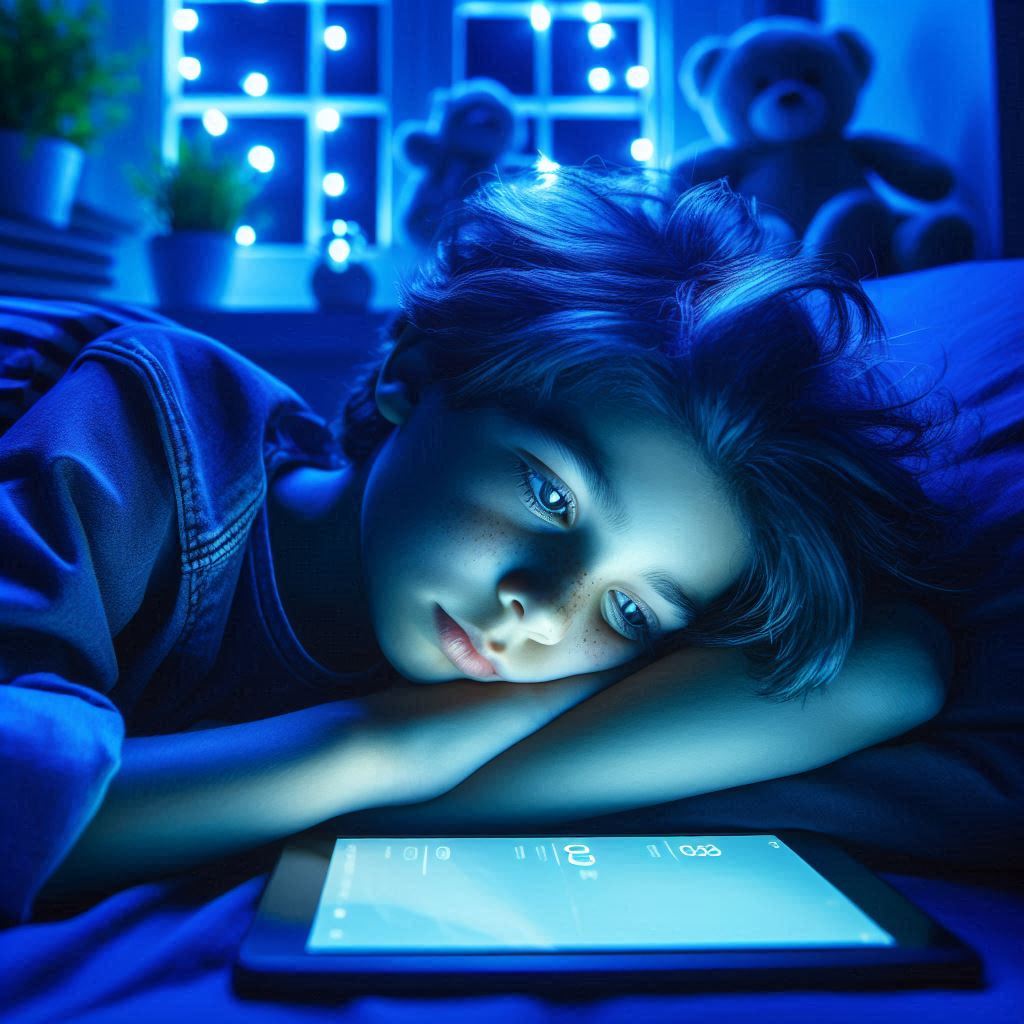
Blue Light & Bedtime: How Screens Disrupt Your Child’s Sleep and What You Can Do About It
From smartphones and tablets to televisions and computers, screens have become an integral part of daily life. However, as screen time has increased, so has the understanding of how these devices impact our health—especially when it comes to sleep. One of the most significant ways screens affect sleep is through the emission of blue light, which disrupts the natural production of melatonin, the hormone responsible for regulating sleep.

Unplugging for Better Sleep: The Power of a Screen-Free Bedtime Routine for Kids
Tablets, smartphones, computers, and televisions are used for entertainment, education, and socializing. However, there is growing evidence that excessive screen time, especially close to bedtime, can interfere with sleep. A screen-free bedtime routine can improve your child’s overall sleep quality, which is essential for their physical, mental, and emotional development.

Screen Time Balance: Navigating Healthy Limits for Kids of All Ages For Better Sleep
While screens can serve as valuable tools for learning, entertainment, and communication, there is growing concern over the amount of time children spend in front of them. Experts agree that excessive screen time can have a detrimental effect on children’s health, including their physical, emotional, and cognitive well-being.
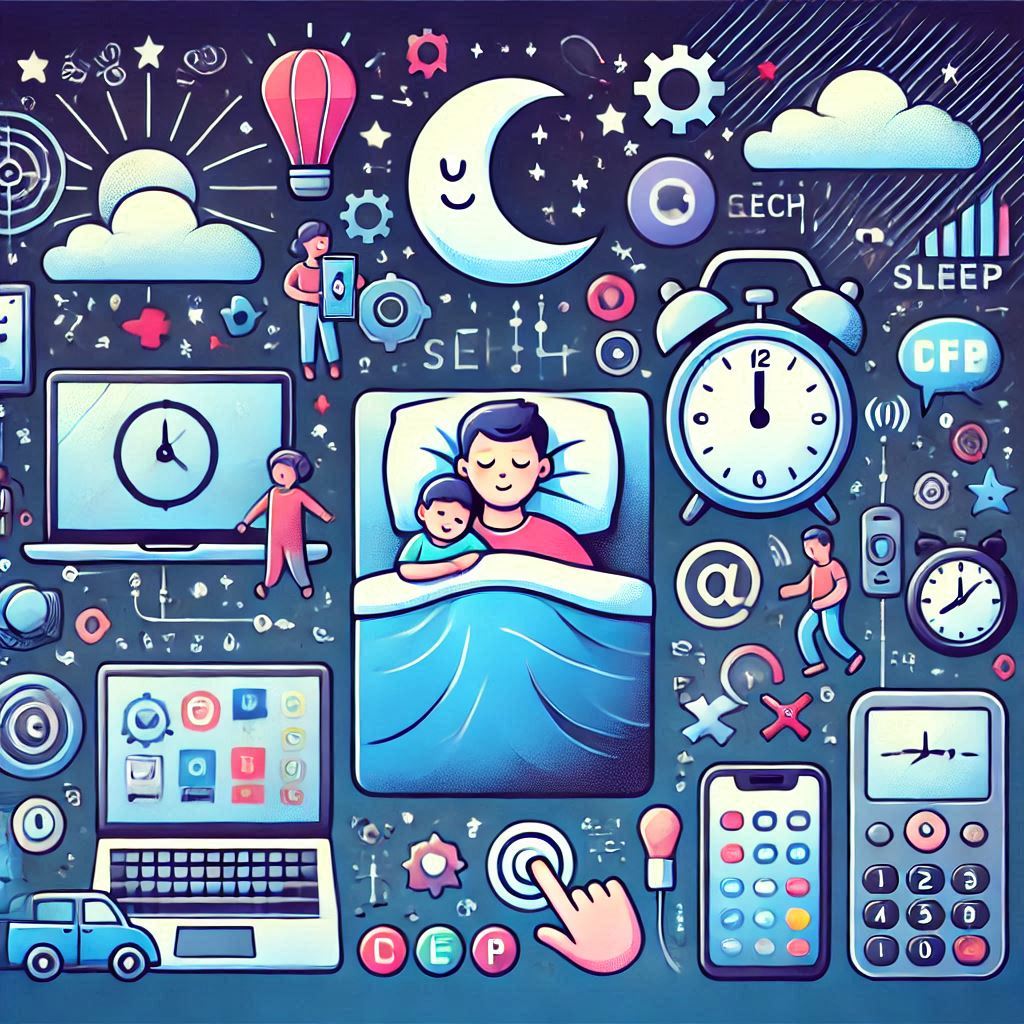
Technology and Sleep: How Parenting Tech Tools Can Help Manage Screen Use
Children today are surrounded by screens from a young age—whether it’s a smartphone, tablet, computer, or television. While technology has undoubtedly brought many benefits, it also presents challenges, especially when it comes to sleep and managing screen time. As parents navigate this landscape, they are turning to various tech tools to help monitor, control, and guide their children’s screen use to promote better sleep hygiene.

Unplugging for Better Sleep: How Parenting Tech Tools Can Tame Screen Time and Boost Kids’ Rest
Sleep is crucial for children’s development, influencing everything from cognitive function to emotional regulation. Unfortunately, the ubiquitous presence of screens—smartphones, tablets, computers, and televisions—has become a significant disruptor of sleep hygiene. With children spending more time on screens, whether for entertainment, socializing, or education, parents face increasing challenges in ensuring that their children get adequate and restorative sleep.
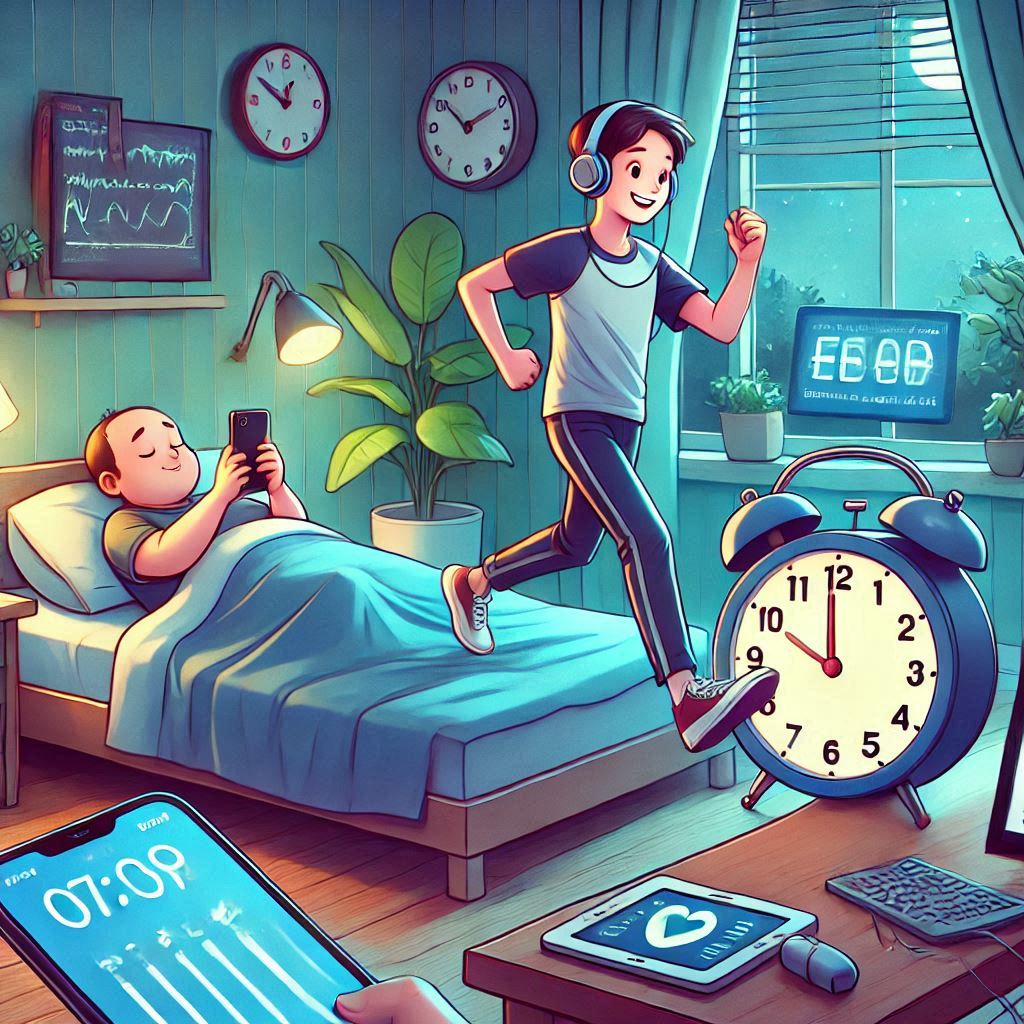
The Role of Physical Activity in Managing Screen Time and Promoting Healthy Sleep
In an increasingly digital world, children’s daily routines are dominated by screens. Whether for educational purposes, social media, or gaming, digital devices have become an inseparable part of modern childhood. However, this rise in screen usage is accompanied by significant concerns, especially regarding its impact on children’s sleep.

How Family Habits and Screen Use Can Affect Sleep Patterns in Children
Sleep is crucial for the growth and development of children, yet modern technology and family habits around screen use can significantly impact children’s sleep patterns. As digital devices such as smartphones, tablets, computers, and televisions become integral parts of daily life, the way families interact with technology—whether individually or collectively—can affect how well children sleep.

Importance of Sleep Education for Children: Teaching Kids About the Impact of Screens
Sleep affects child’s physical health, cognitive abilities, emotional regulation, and overall well-being. However, with the rise of screen-based activities in children’s daily lives, sleep is increasingly disrupted, leaving children with insufficient rest.

Manage Screen Time for Teenagers: Navigating School, Social Media, and Sleep
From smartphones to laptops, and from social media platforms to video games, the presence of screens in the lives of adolescents has never been more pervasive. While screens have undoubtedly provided tremendous benefits, such as making educational resources accessible and enhancing communication, they also pose significant challenges—especially when it comes to balancing schoolwork, social media, and sleep.

Tech-Savvy Sleep: How Gadgets Can Help Your Kids Rest Better
However, technology isn’t just something that can negatively affect sleep; it can also be leveraged to promote better sleep habits. Numerous devices have been created with the specific purpose of improving sleep quality, particularly for children.

Unplug to Recharge: How Screen-Free Socializing Boosts Sleep and Well-Being
Children’s sleep patterns have been increasingly disrupted by the proliferation of screen-based activities, from smartphones and tablets to television and video games. As digital devices continue to invade almost every aspect of daily life, the way children interact socially has shifted dramatically, with many opting for virtual connections over face-to-face interactions.
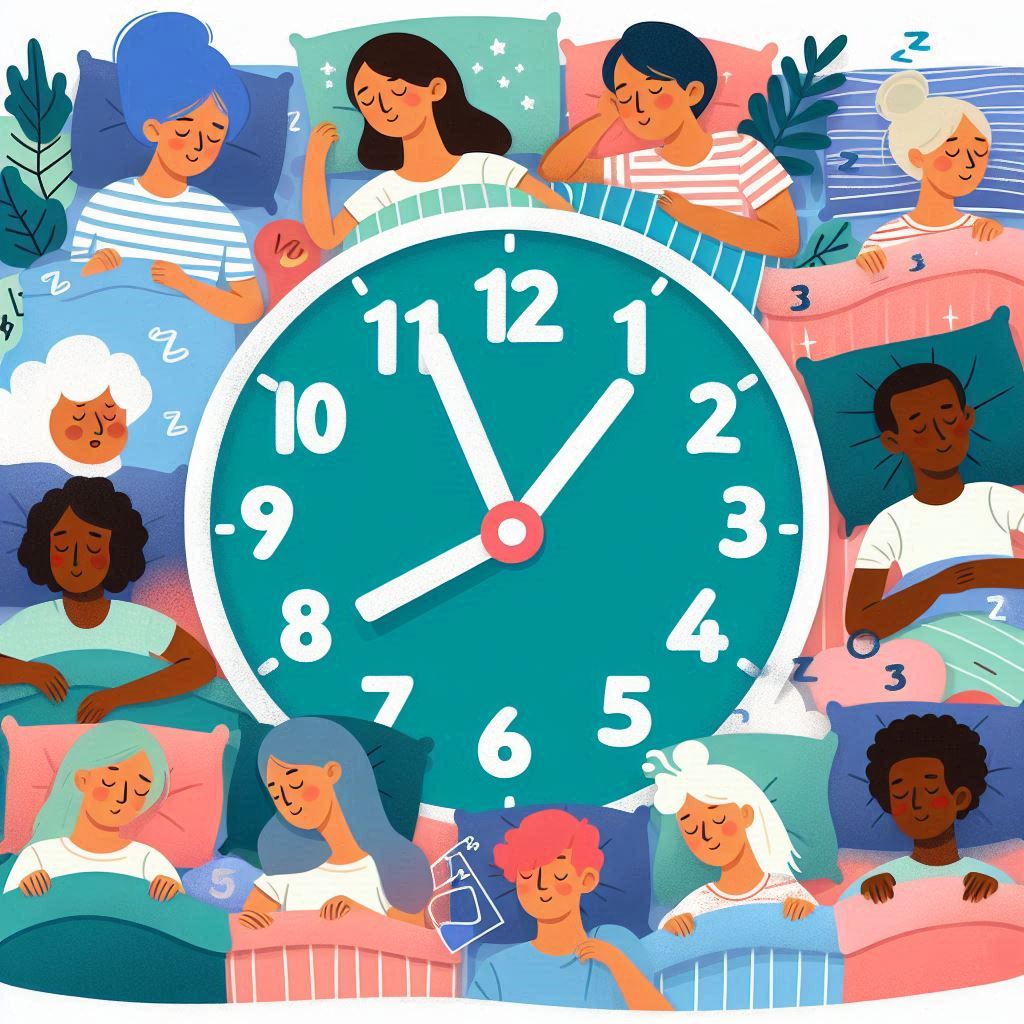
Setting Screen Time Limits for Healthy Sleep: How to Establish Consistency
With smartphones, tablets, laptops, and TVs becoming central to many children’s lives, managing screen time has never been more challenging. The impact of excessive screen time on children’s sleep is undeniable, leading to disrupted sleep cycles, delayed bedtimes, and even long-term health issues.
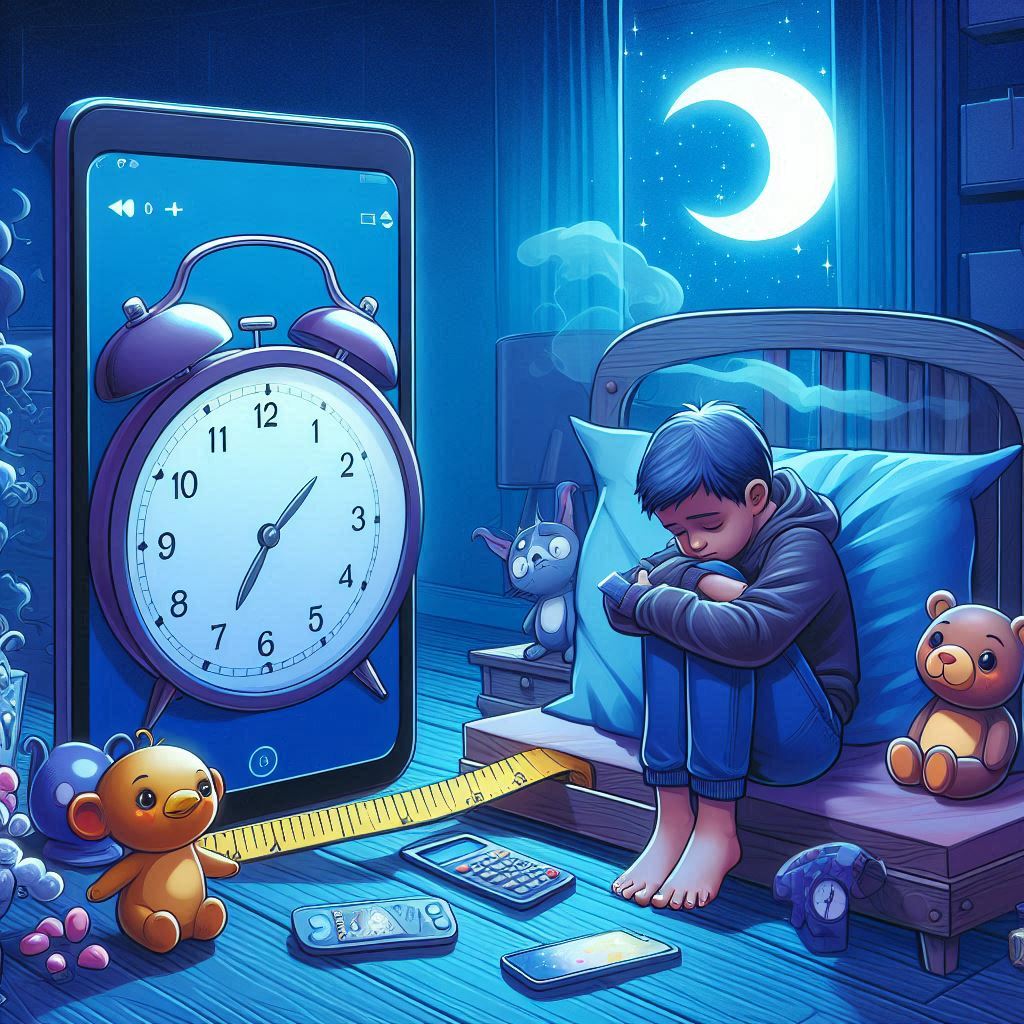
The Link Between Screen Time and Sleep Disorders in Children
There is growing concern among researchers and parents alike regarding the impact of excessive screen time on children’s sleep patterns. Conditions like insomnia, delayed sleep phase syndrome, and other sleep disturbances have been linked to screen overuse, particularly in the evening hours. Understanding this connection and addressing it early can help mitigate the negative effects on children’s sleep and overall well-being.

How Family Screen Time Limits Can Improve Overall Sleep Hygiene
Establishing healthy screen time limits and creating evening rituals like family wind-down time can go a long way in improving sleep hygiene, fostering better physical and mental health, and strengthening family bonds.

Alternative Strategies to Help Children Wind Down Without Screens to Improve Bedtime
These screens provide entertainment, education, and social interaction, but they often come at a cost: disrupted sleep patterns. Many children have difficulty winding down at night, and the use of screens right before bed can exacerbate these issues. The blue light emitted from devices interferes with melatonin production, the hormone that helps regulate the sleep-wake cycle, leading to difficulty falling asleep.
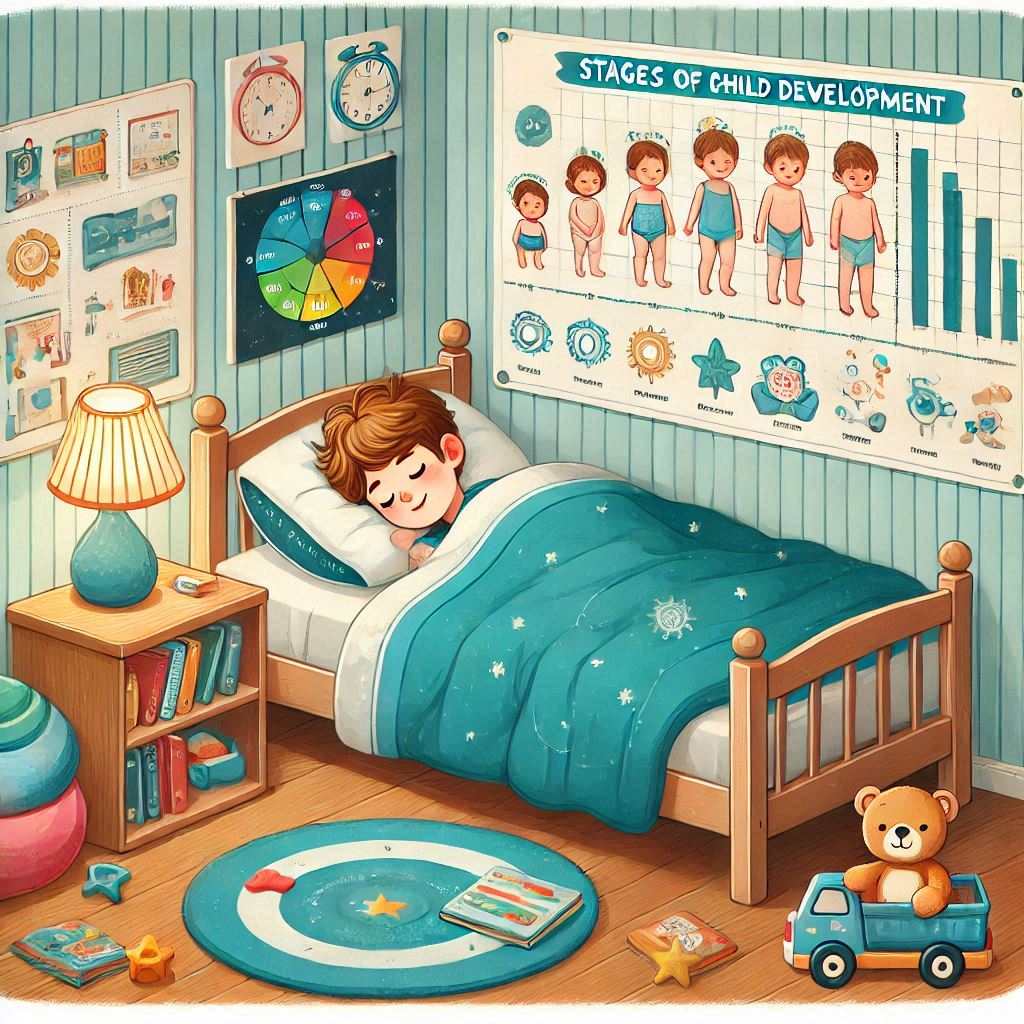
The Role of Sleep in Child Development: Why Managing Screen Time is Critical
The impact of sleep on cognitive, emotional, and physical growth is immense, and understanding these connections is crucial for parents, educators, and health professionals to ensure that children are developing in the healthiest ways possible.

How Parental Screen Time Impacts Bedtime Routines and Child Sleep Quality
In today’s world, digital devices are omnipresent, and their impact on our daily lives cannot be underestimated. From smartphones to tablets and laptops, the availability of entertainment, information, and connectivity through these screens has changed the way we work, communicate, and even relax.
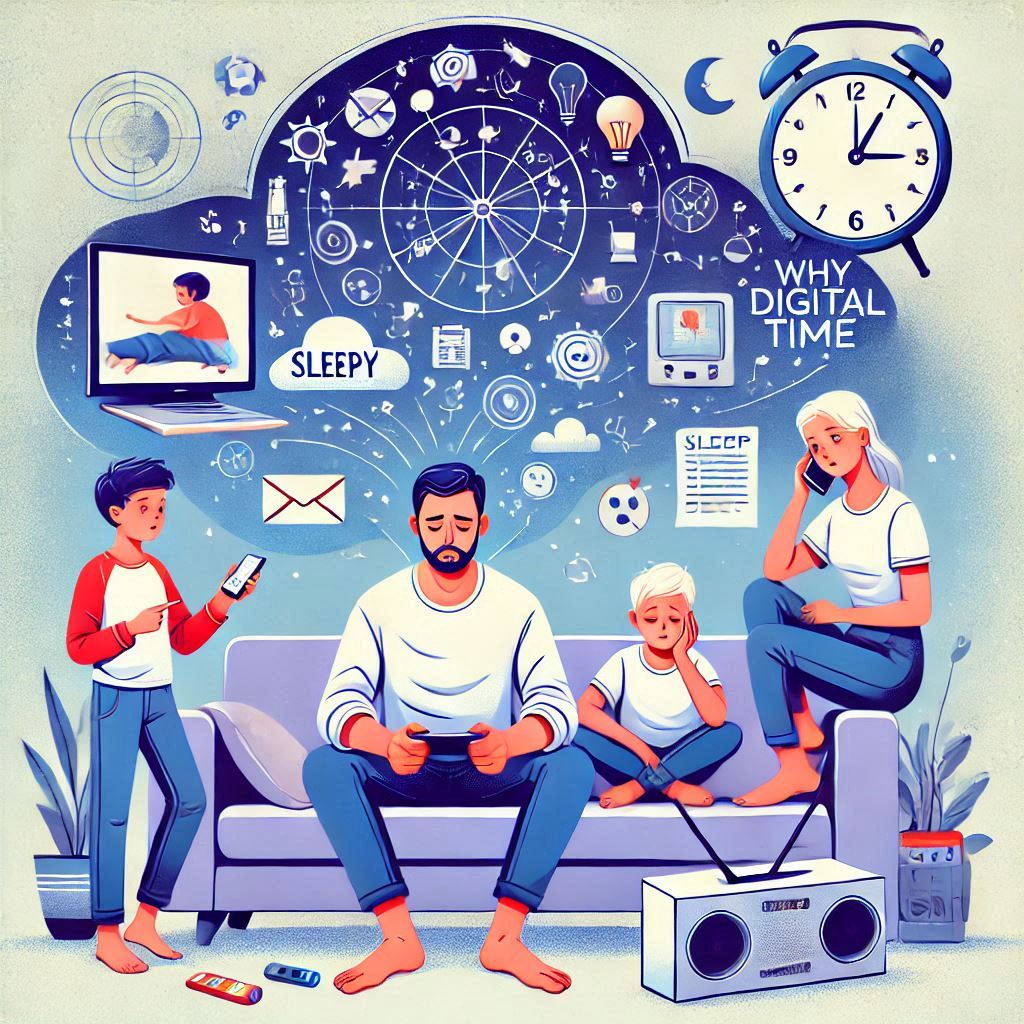
The Effect of Family Screen Time on Sleep: Why Digital Detox is Essential for Parents and Kids
Parents and children alike are increasingly tethered to devices that may be damaging not only to their mental health but also their sleep patterns. This article explores how collective screen time in a household affects sleep quality, and offers practical tips for a family-wide digital detox.
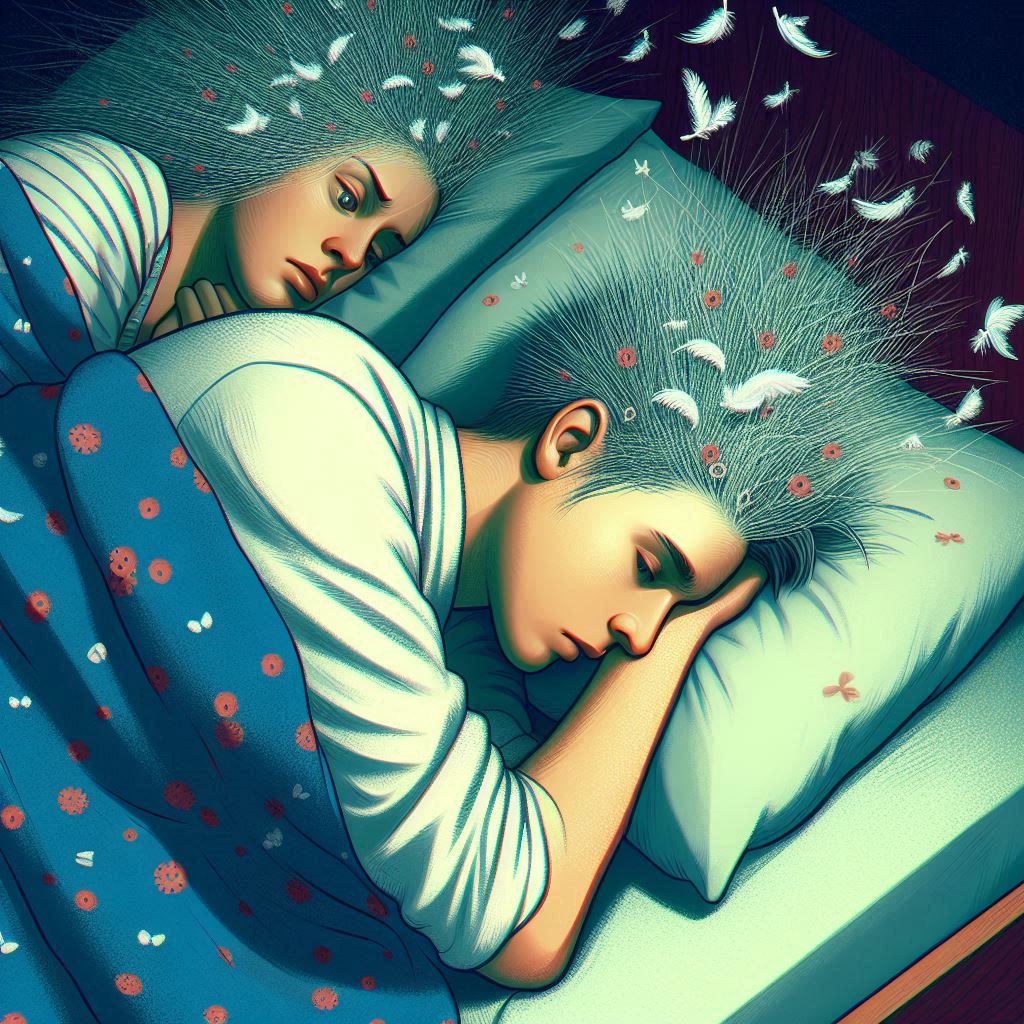
Sleeping with Anxiety: The Hidden Mental Health Struggles of Narcolepsy
Narcolepsy is a neurological disorder that impacts the brain’s ability to regulate the sleep-wake cycle, causing overwhelming daytime sleepiness and unexpected sleep episodes. While its primary symptoms, such as excessive daytime sleepiness (EDS), cataplexy (a sudden loss of muscle tone), and sleep disturbances, are well known, the psychological consequences of living with narcolepsy are often overlooked.
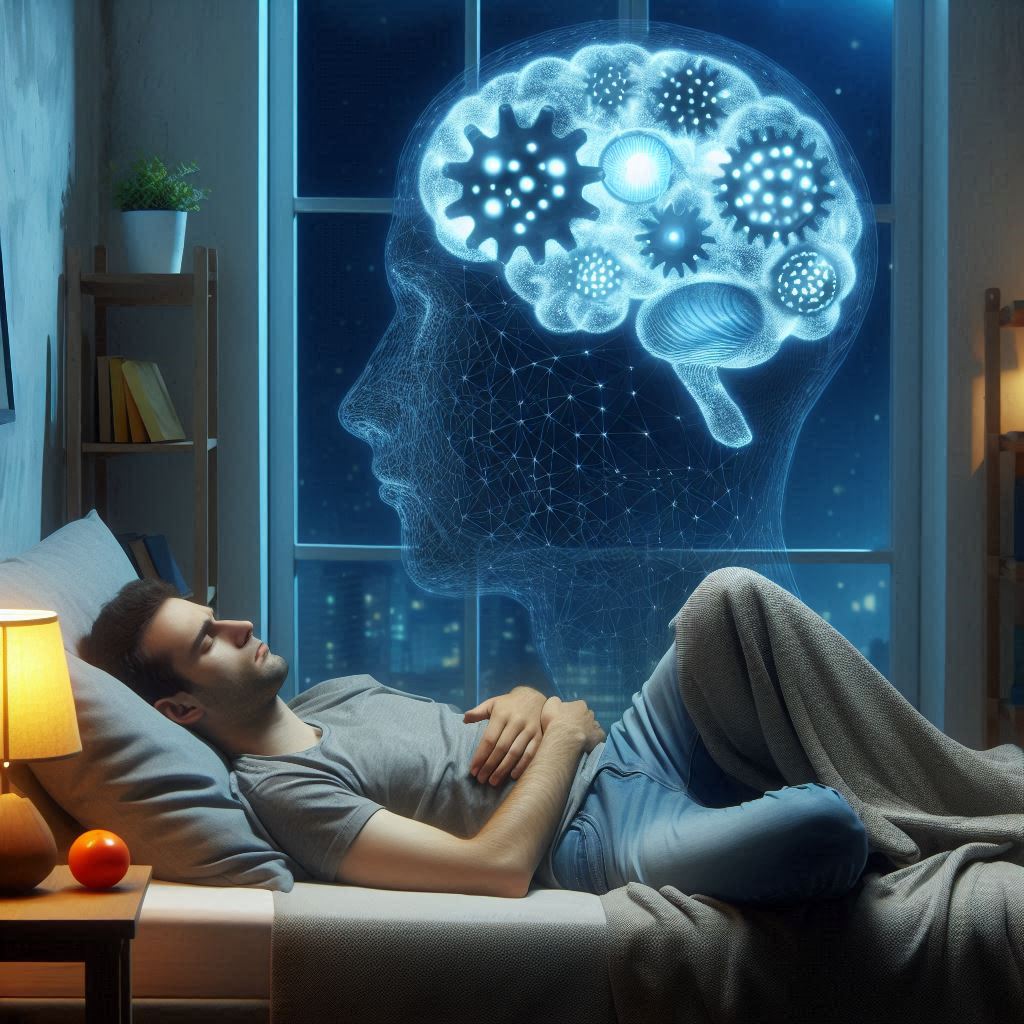
Narcolepsy and the Mind: How Chronic Fatigue Fuels Depression and Anxiety
Narcolepsy is a chronic neurological disorder that affects the brain’s ability to regulate sleep-wake cycles. It is most commonly characterized by excessive daytime sleepiness, sleep attacks, cataplexy (sudden muscle weakness), and other sleep-related disturbances.
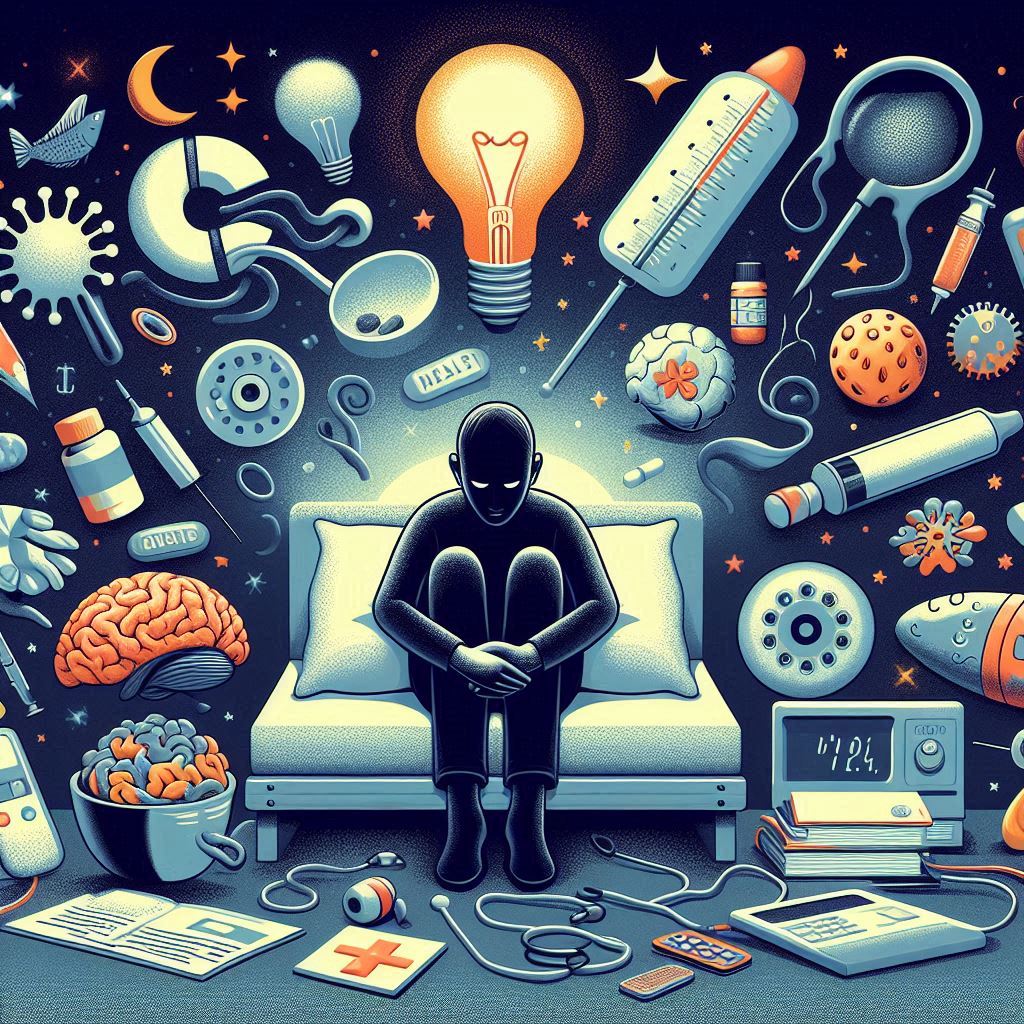
Beyond the Sleep: The Untold Mental Health Battles of Narcolepsy
Narcolepsy is a neurological condition that impacts a person’s ability to regulate sleep-wake cycles. Though most people understand it as an uncontrollable desire to sleep during the day, the impact of narcolepsy stretches far beyond the obvious physical symptoms.

Waking Up to Mental Health: Understanding the Emotional Toll of Narcolepsy
Narcolepsy is often misunderstood as a condition solely characterized by excessive daytime sleepiness and sudden, uncontrollable sleep episodes. While these symptoms are indeed hallmarks of the disorder, they only scratch the surface of the profound and complex impact narcolepsy has on an individual’s emotional and psychological well-being.
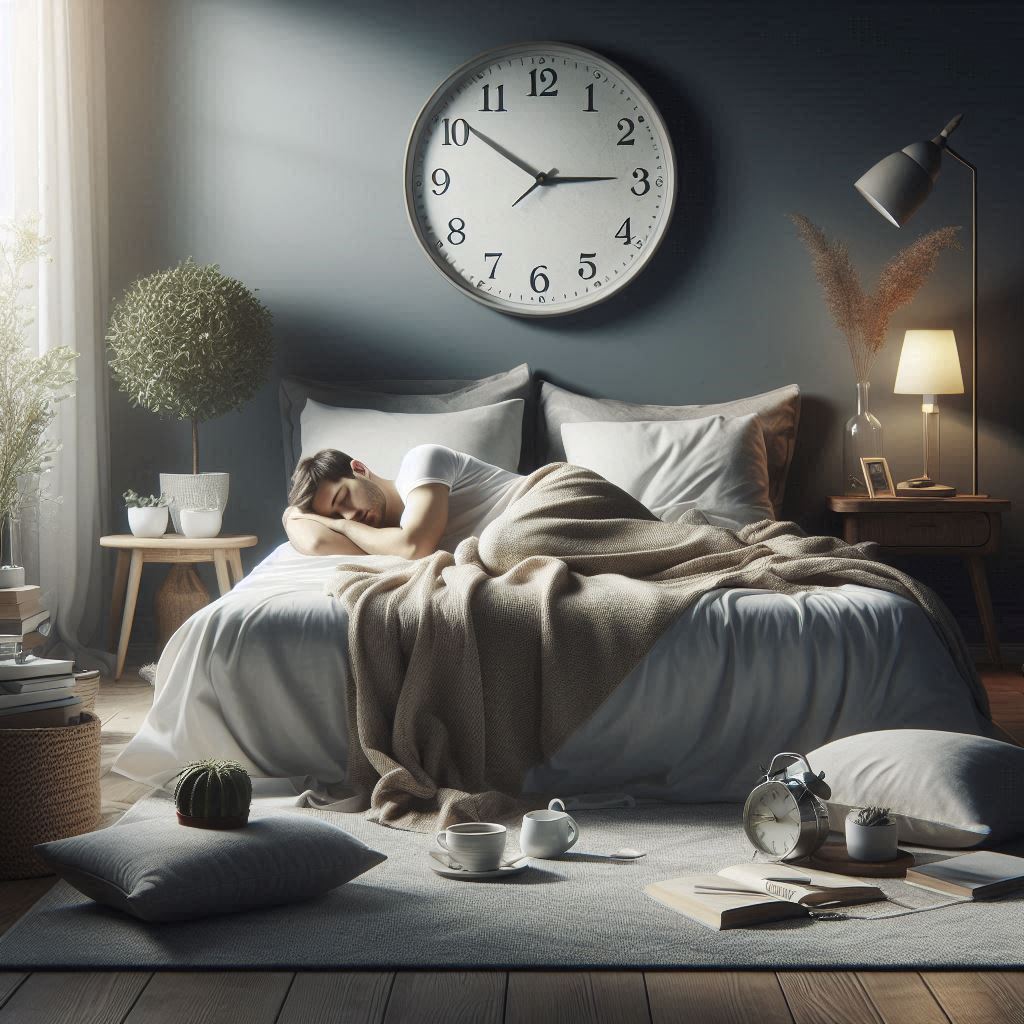
The Connection Between Sleepiness and Stress
Narcolepsy, at its core, is a disorder that disrupts the body’s ability to maintain a consistent sleep-wake cycle. One of the most prominent symptoms of narcolepsy is excessive daytime sleepiness (EDS), where individuals experience a compelling need to sleep during the day, often falling asleep at inopportune moments.
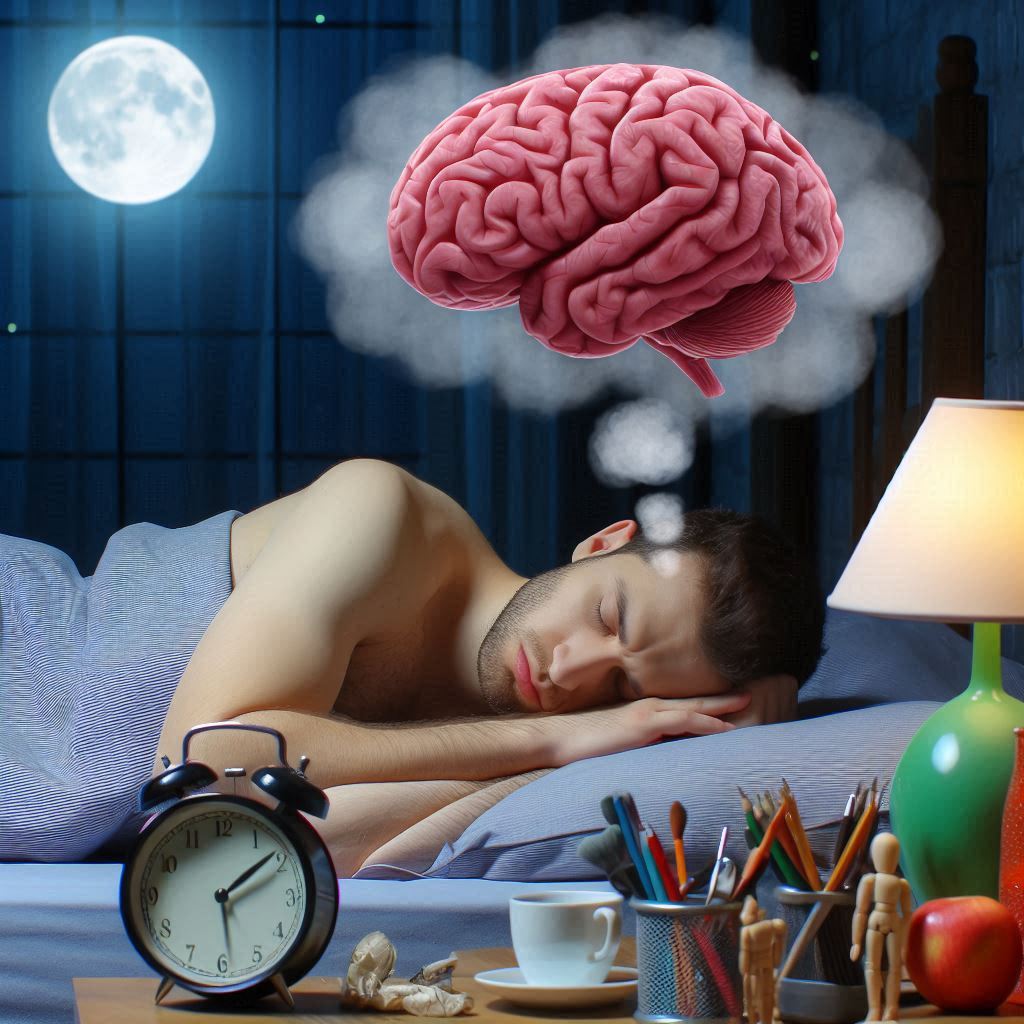
Narcolepsy and the Brain: How Interrupted Sleep Takes a Toll on Mental Health
The effects of sleep deprivation on mental health are profound, and in the case of narcolepsy, where disrupted sleep is chronic and uncontrollable, the toll on emotional well-being can be severe. The brain’s regulation of sleep is a delicate process, and narcolepsy interferes with the mechanisms that maintain a stable sleep-wake pattern.
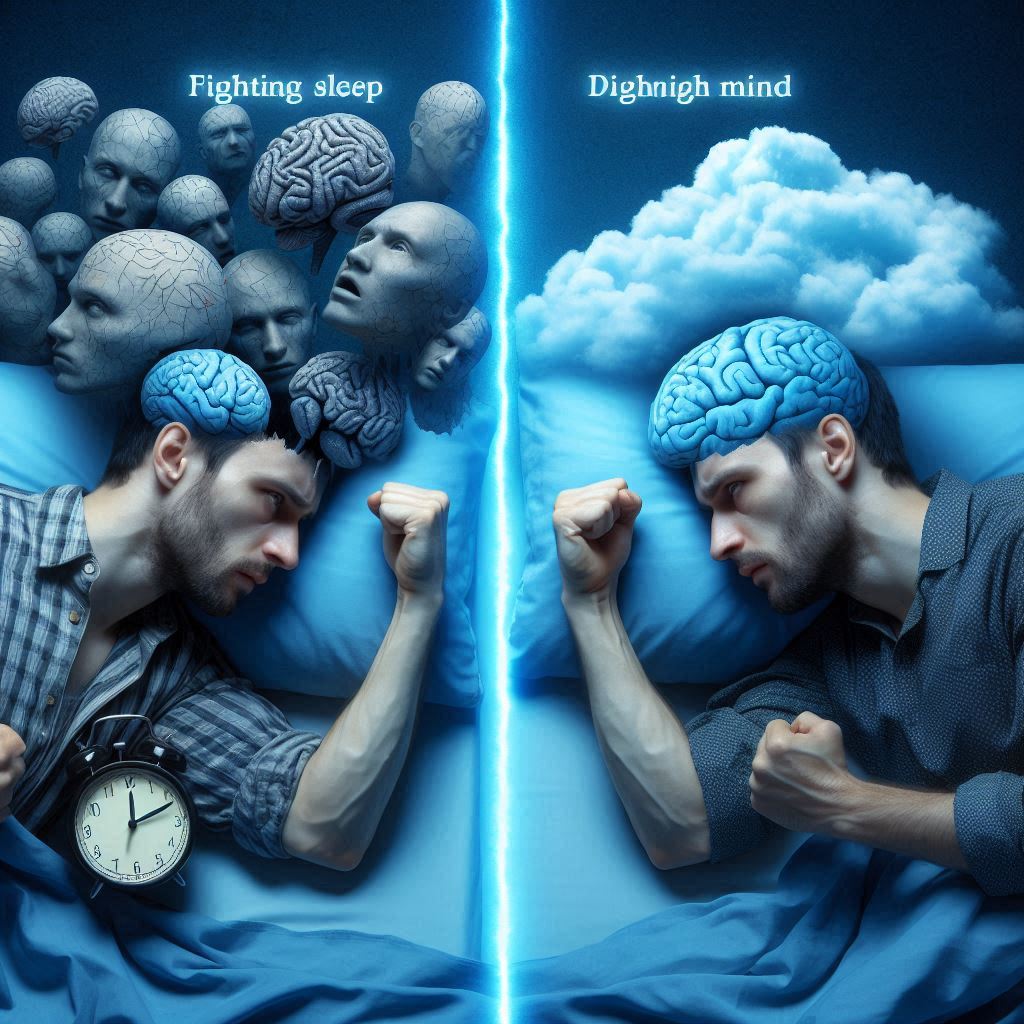
Fighting Sleep, Fighting Mind: The Dual Struggles of Narcolepsy and Mental Health
Narcolepsy is a chronic neurological condition that causes extreme daytime sleepiness, often leading individuals to fall asleep unexpectedly during routine activities. It is a disorder of the central nervous system that impacts the brain’s ability to regulate sleep-wake cycles. Individuals with narcolepsy often battle with the dual challenge of trying to stay awake while fighting an inherent biological urge to sleep.
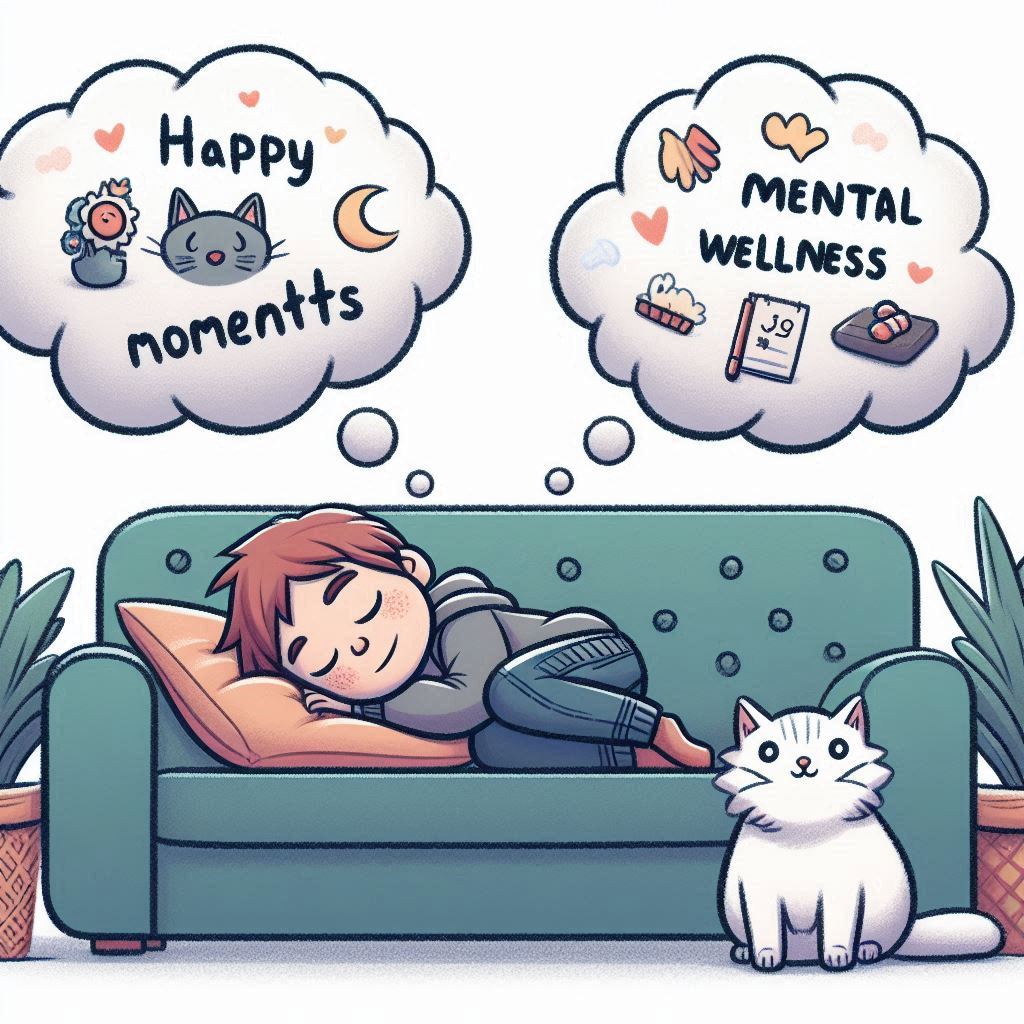
More Than Just Sleep: The Dark Link Between Narcolepsy and Mental Health
Narcolepsy is a neurological disorder that affects the brain’s ability to regulate the sleep-wake cycle. It is characterized by excessive daytime sleepiness, which can make daily life challenging, and other symptoms like cataplexy (a sudden loss of muscle strength triggered by strong emotions), sleep paralysis, and vivid hallucinations.

Living in a Fog: The Mental Health Consequences of Narcolepsy
The mental health consequences of narcolepsy are both complex and profound, with the disorder’s impact often compounded by societal misconceptions, a lack of awareness, and insufficient support for those living with it. This essay will delve into the mental health challenges faced by people with narcolepsy, examining how the disorder affects their emotional, psychological, and cognitive well-being, and how it may lead to or exacerbate other mental health conditions.
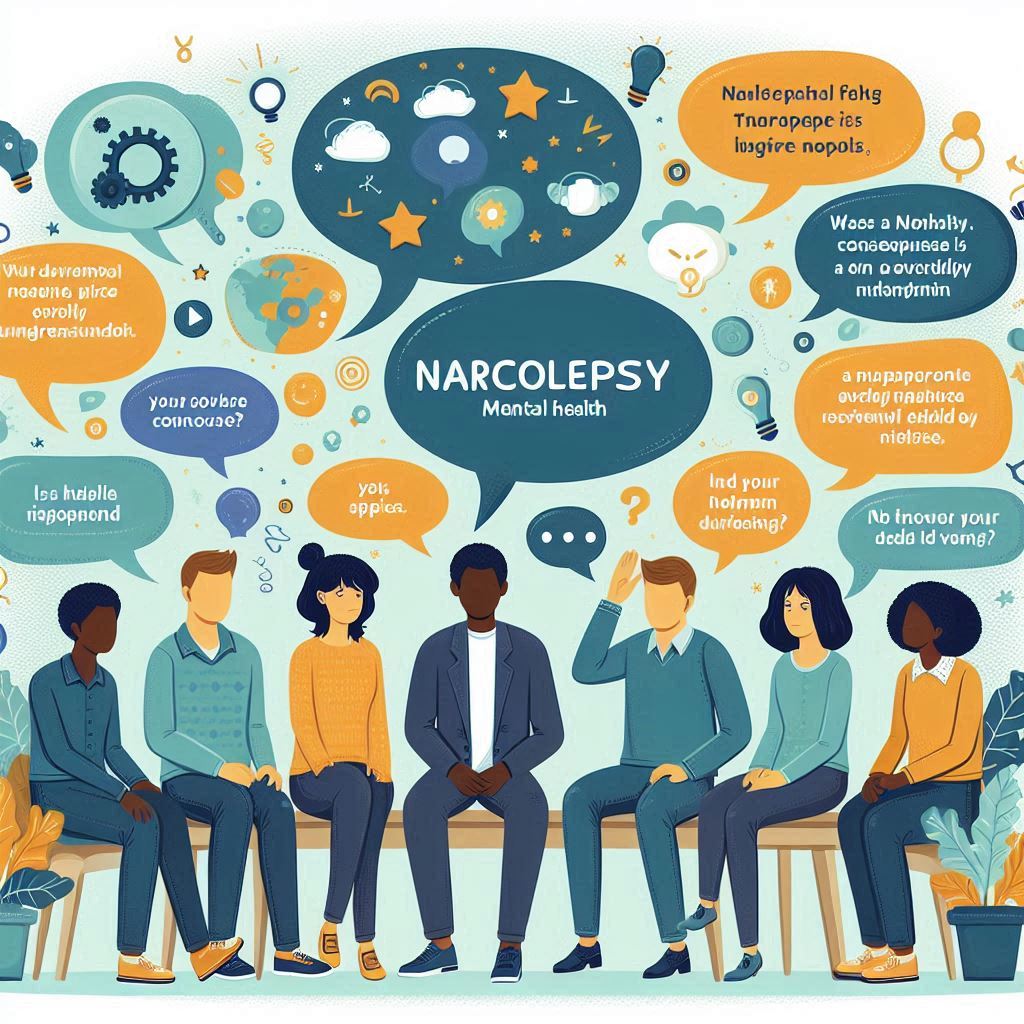
Cataplexy and Mood Swings: Narcolepsy’s Hidden Effect on Mental Health
Cataplexy, one of the hallmark features of narcolepsy, involves sudden and temporary muscle weakness or paralysis triggered by strong emotions such as laughter, anger, or surprise. While cataplexy itself is a physical manifestation of the disorder, it is often deeply intertwined with the emotional and psychological challenges faced by individuals with narcolepsy.
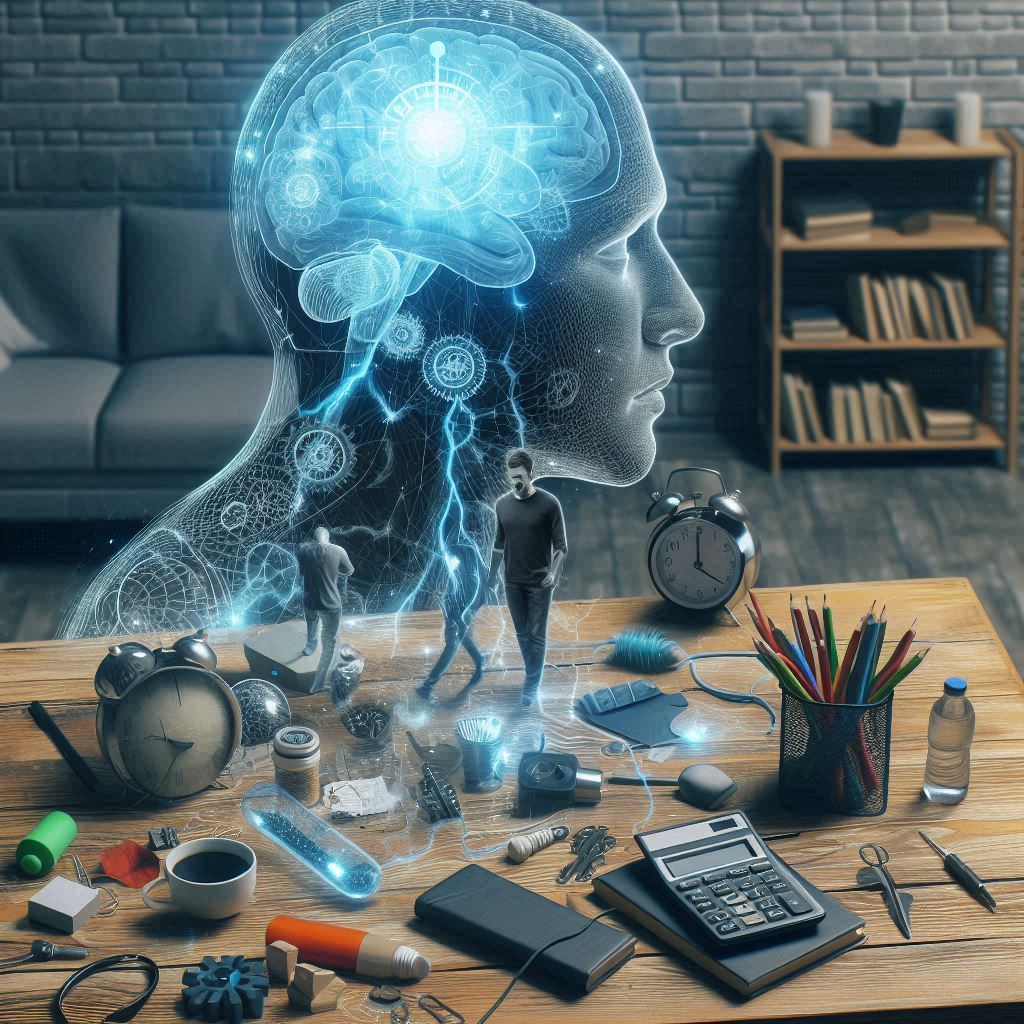
The Psychological Impact of Narcolepsy on Daily Life
The disorder affects approximately 1 in 2,000 individuals, with many remaining undiagnosed for years due to the subtlety of early symptoms. Although narcolepsy is primarily a sleep disorder, it profoundly impacts various aspects of a person’s life, especially their mental and emotional well-being.
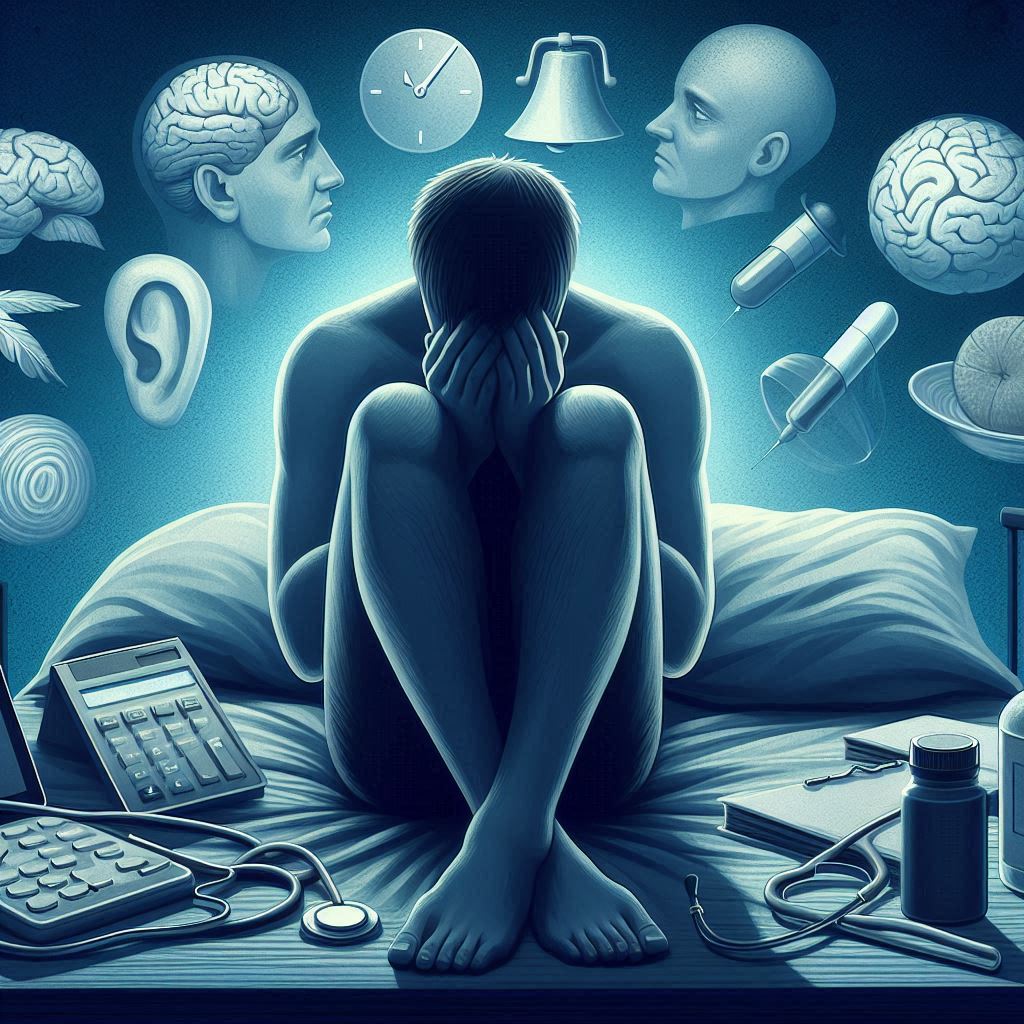
Comorbidity of Narcolepsy and Mental Health Disorders
The comorbidity of narcolepsy and mental health disorders is a topic that has garnered increasing attention over recent decades. Narcolepsy, a chronic neurological condition primarily characterized by excessive daytime sleepiness (EDS), cataplexy, sleep paralysis, and hypnagogic hallucinations, often coexists with various mental health conditions such as depression, anxiety, bipolar disorder, and others.